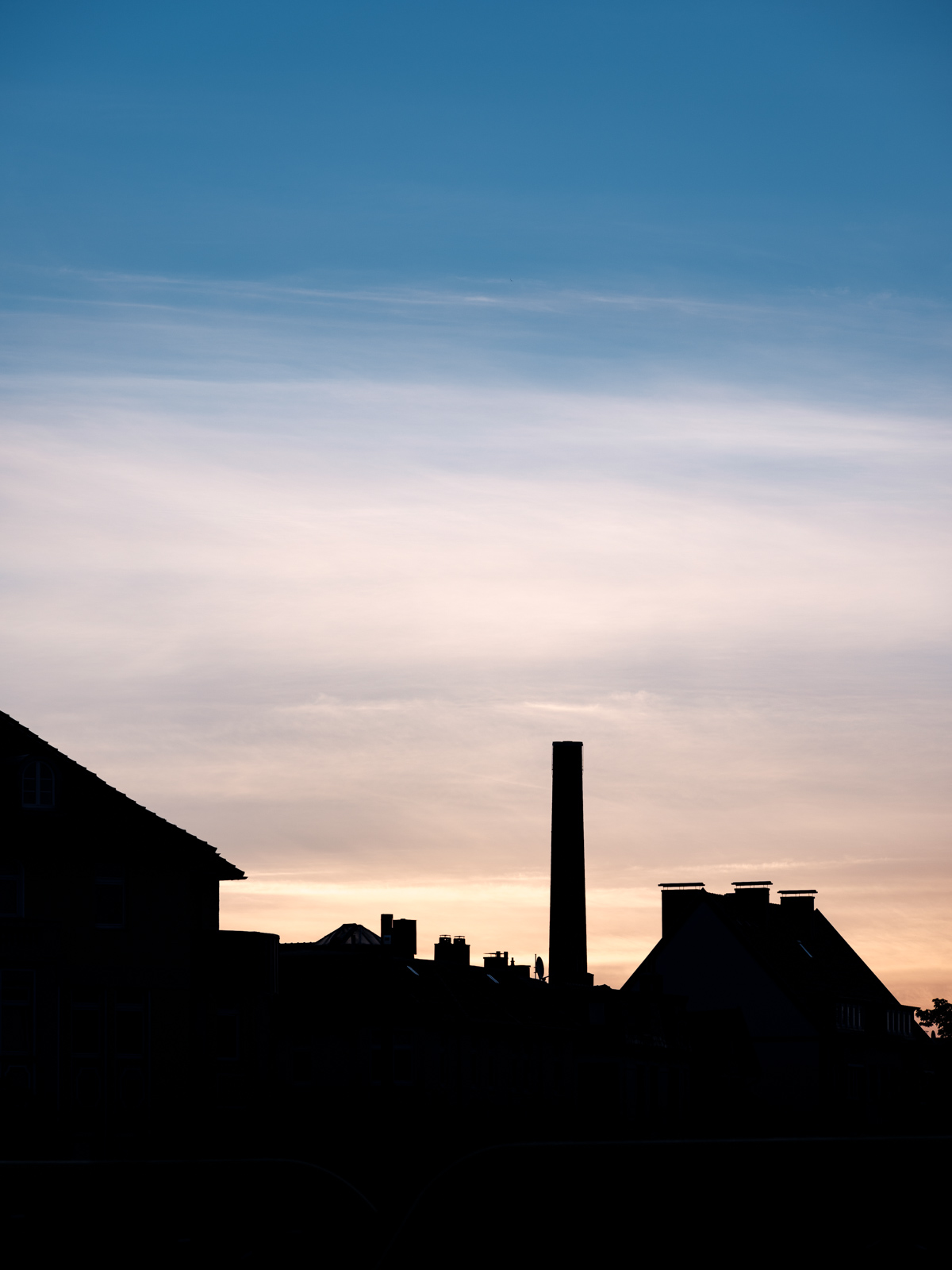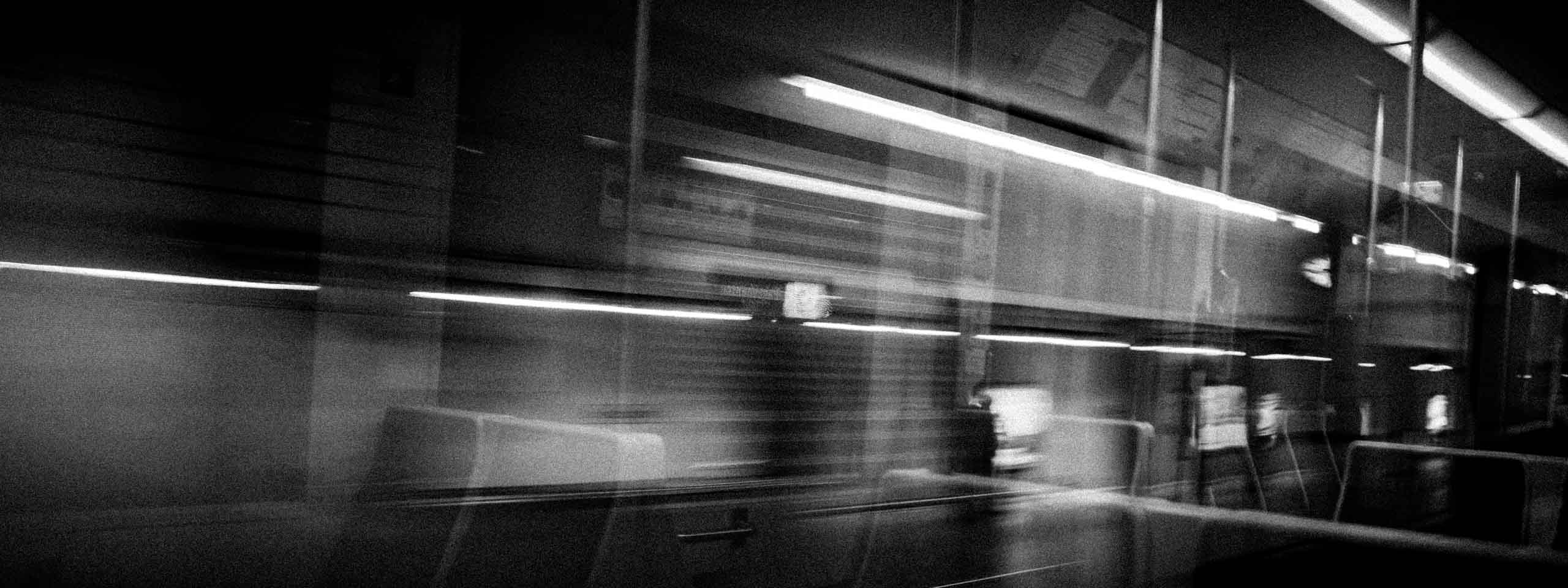20/06/2020
Where I have already photographed the wind turbines in 'Brönninghausen' a few days ago, I have been on the way with the same aim in the district 'Jöllenbeck' last weekend. In 'Jöllenbeck' there are not so many, but there is one that is really beautifully located. It is located at the 'Bargholzstraße'. There were no dramatic clouds, but a beautiful pastel coloured sky.
Some people do not like wind turbines in the landscape. I don't really understand it. At least not when I think of the hype about old windmills. They're very popular. Modern wind turbines are basically nothing more than the rediscovery of the possibility of using the wind as a source of energy.
Prints of the pictures are available in my online shop. If you want to visit the shop, you have to leave this website: www.farbenfrohebilder.de
Wind turbine in Jöllenbeck #1
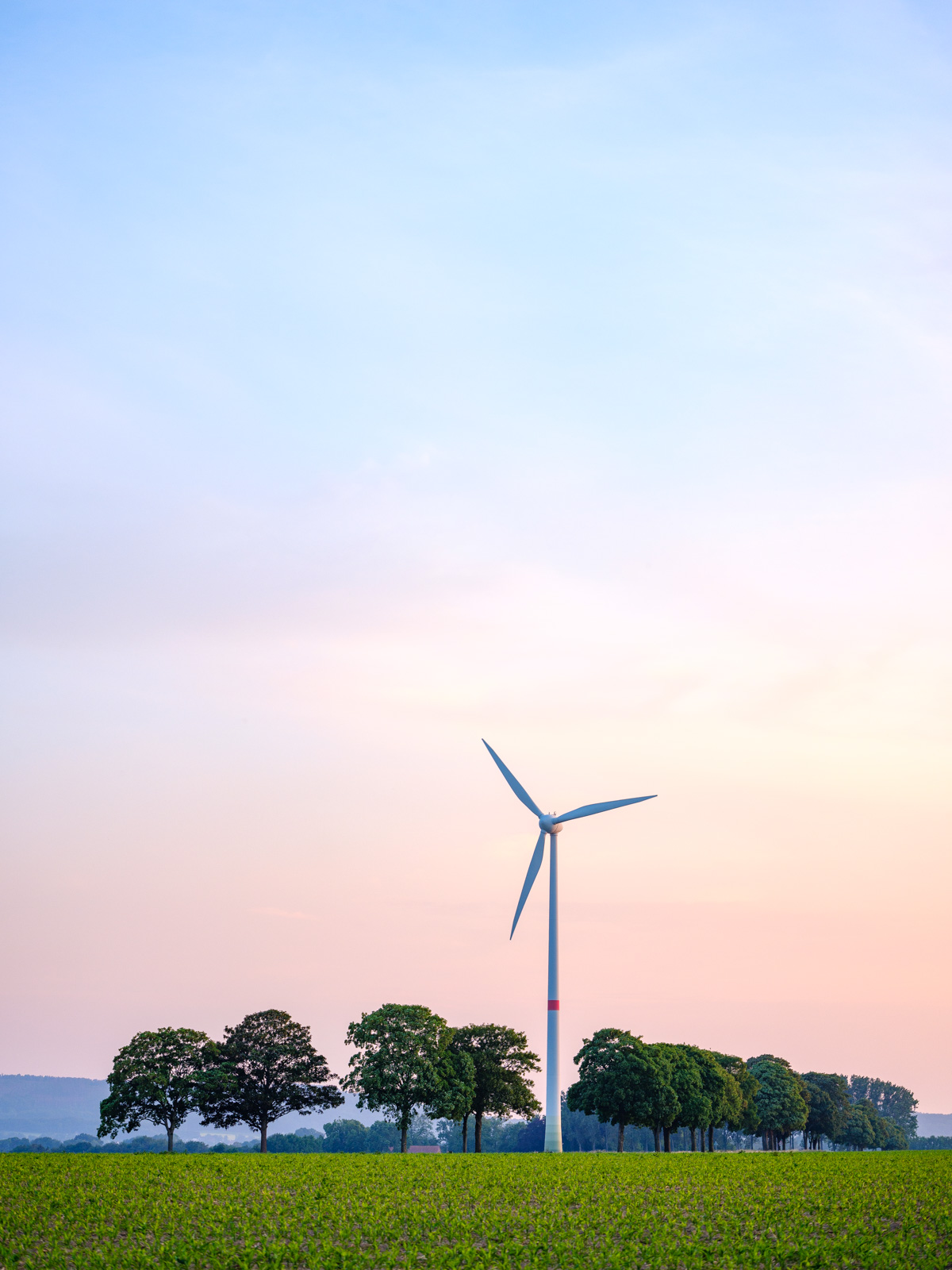
Wind turbine in Jöllenbeck #2
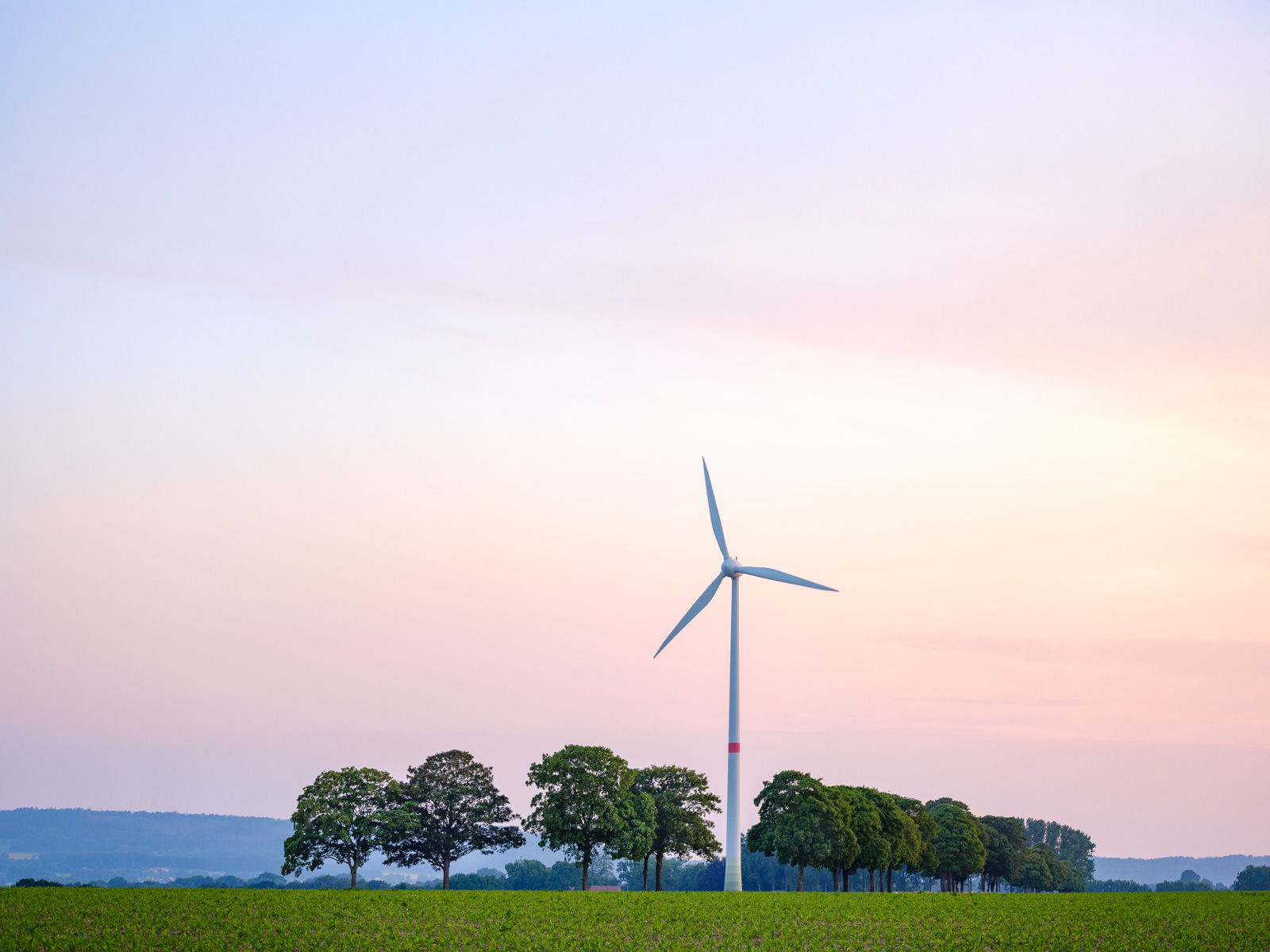
> Nature
06/12/2020
Somewhere there are always poles of high voltage lines in the picture. At least that's how it is in German landscapes. Many wild landscapes no longer exist in Central Europe, but there are many towns and communities that need to be supplied with electricity. The expansion of renewable energy sources also makes it necessary to build more power lines. I have consciously integrated power lines into my pictures and in the end it is more honest than always taking pictures around them or retouching them out of pictures.
In this case the power line itself is the motif. Near Halle in Westphalia new lines with special big pylons are under construction.
High-voltage line under construction #1
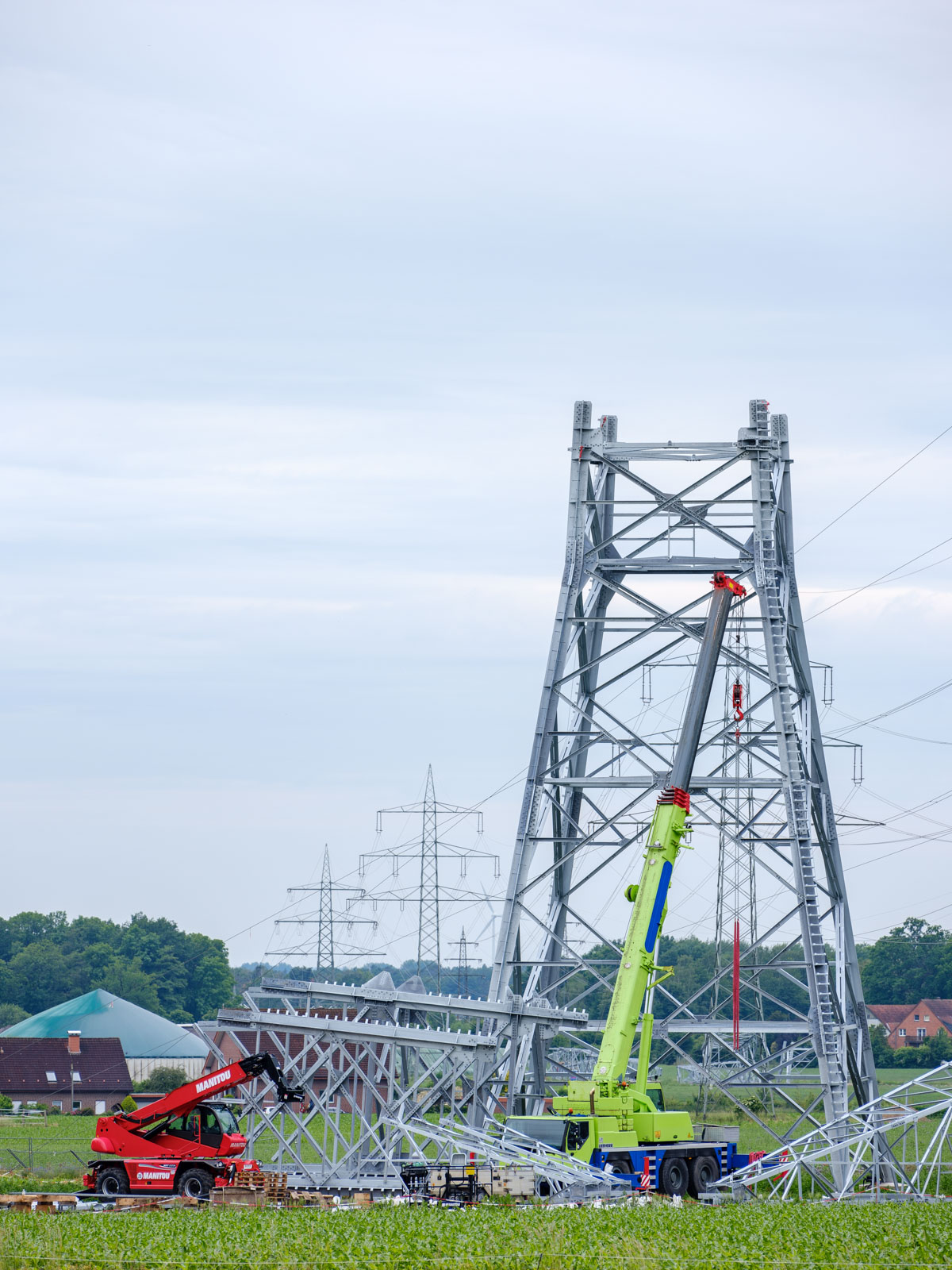
High-voltage line under construction #2
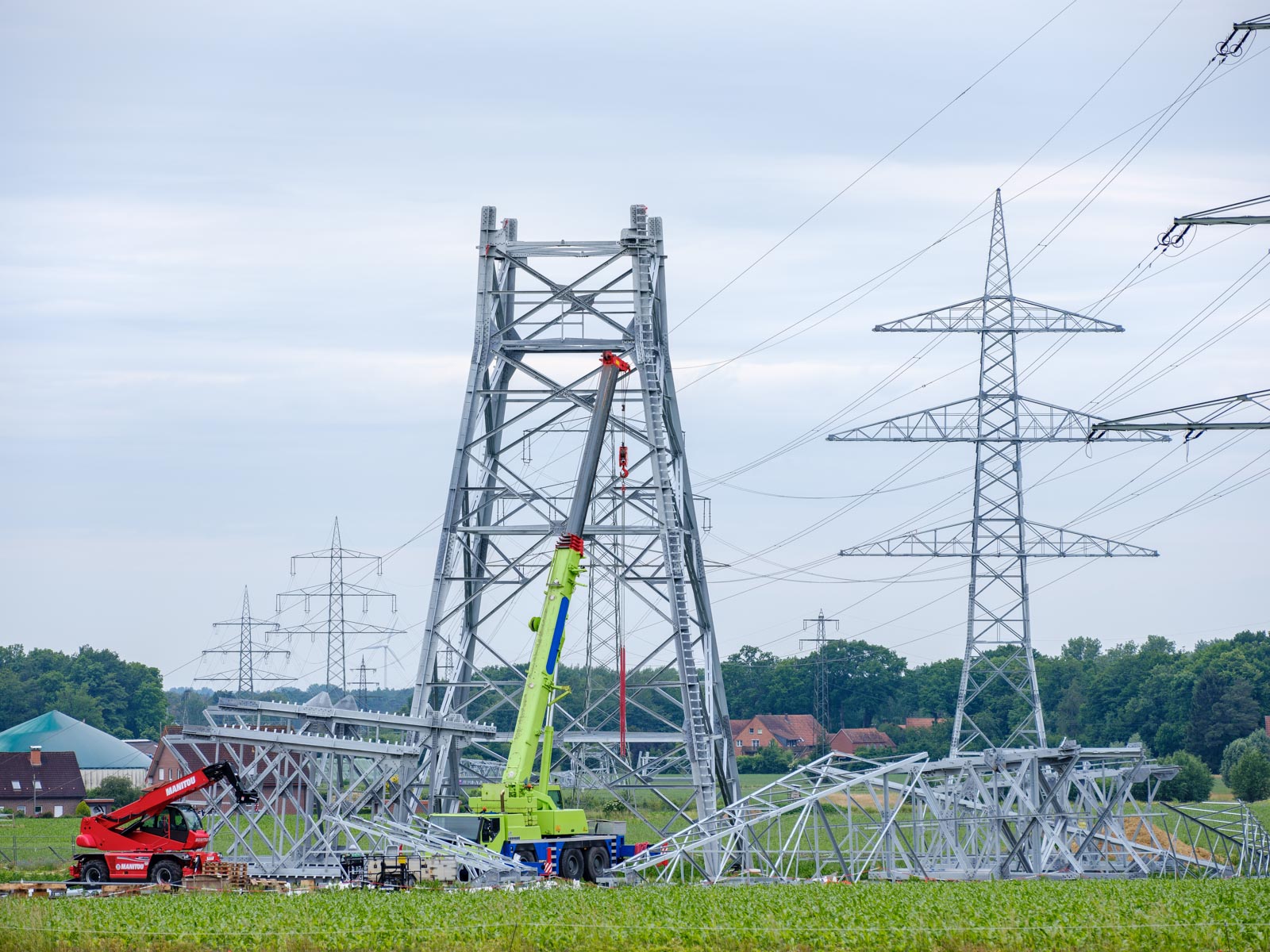
> Nature
06/11/2020
When you go on a forest hike, you don't usually look for cement or asphalt mixing plants. I haven't done that either. But during a 20-kilometre hike in the Teutoburg Forest from the castle 'Ravensburg' near Halle in Westphalia to Steinhagen I came across the asphalt mixing plant in Hesseln. It is located in the middle of the forest in a small valley. I found it photographically very interesting.
Asphalt mixing plant Hesseln #1
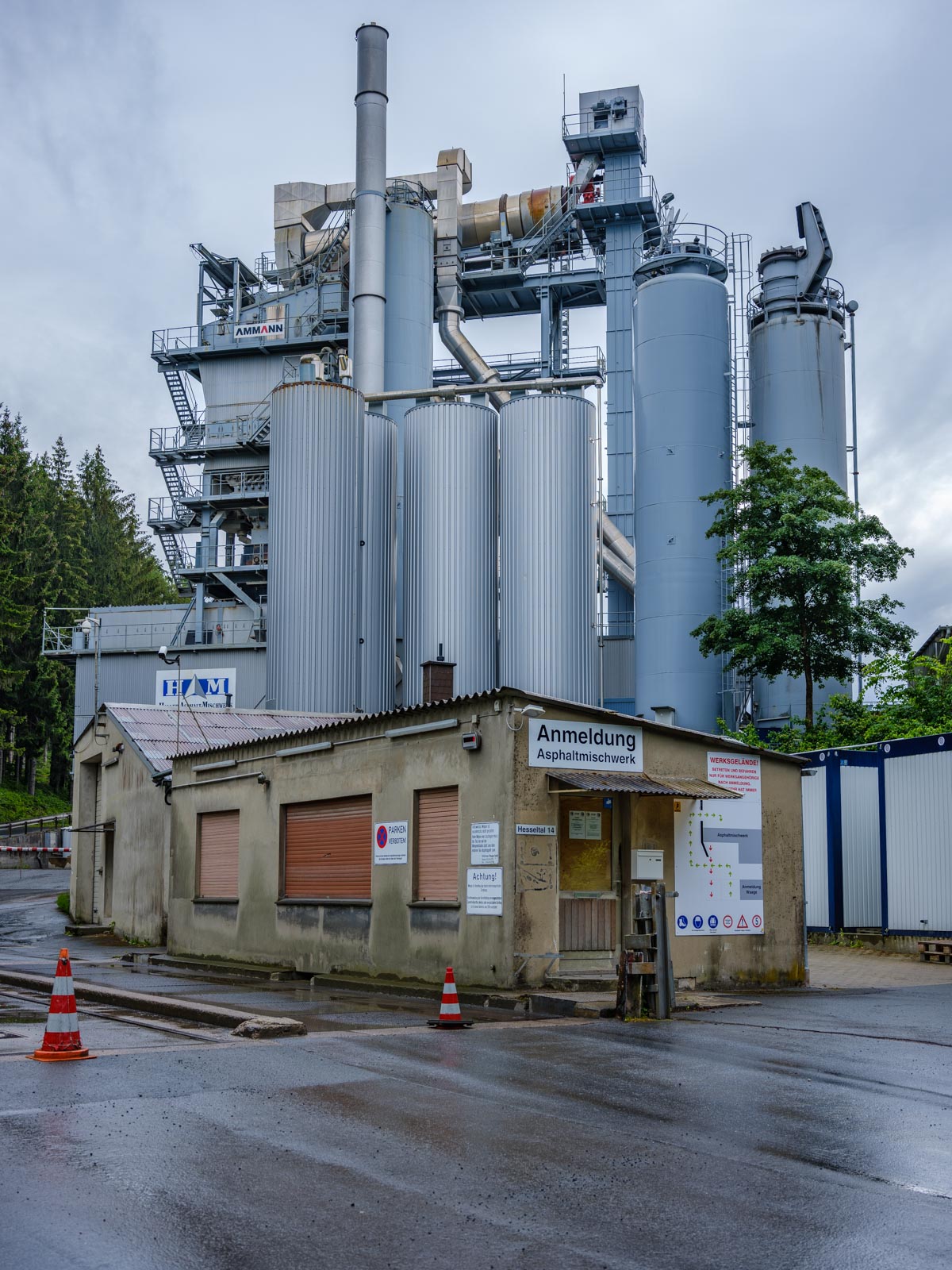
Asphalt mixing plant Hesseln #2
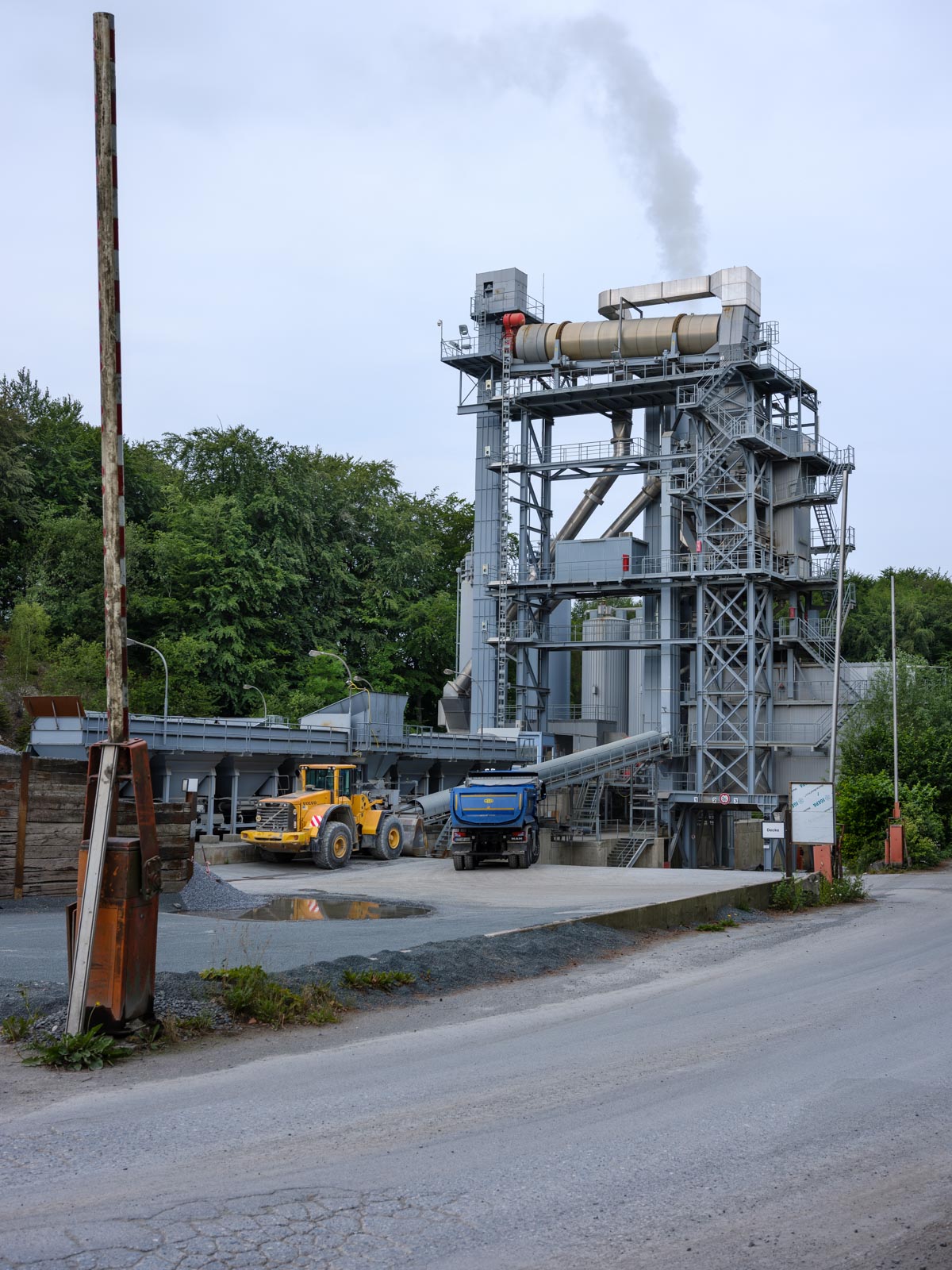
> Nature
06/08/2020
In the early Middle Ages the region of Westphalia belonged to the area where the historic Germanic tribe of the Saxons settled. Until the conquest of the area by Charlemagne in the years 772 to 804 AD, the inhabitants of the region were not Christianised and it may have taken several centuries before the Christian faith finally asserted itself against the old Germanic religion. From this early time there are hardly any architectural testimonies left. This is also due to the fact that stone buildings were practically unknown. An exception are church buildings and monasteries. One such early church building was erected before 789 AD by the nobleman Waltger von Dornberg in the area of today's Bielefeld district 'Deppendorf'. The old church of 'Müdehorst' is one of the oldest churches in Westphalia. The location of the church was long unknown. In 1949 the foundations were rediscovered. In the 1990s, systematic archaeological investigations took place.
The outlines of the church building, which was already of considerable size for that time, can be seen well in the field today. I had always intended to photograph the place. But the foundations for a photo are not very impressive. I solved the photographic problem by choosing an evening with a beautiful sunset and dramatic clouds to take a picture.
More information about the 'Kirche von Müdehorst' is available in German on the website of the 'Historischer Verein für die Grafschaft Ravensberg e.V.'.
Old church of Müdehorst #1
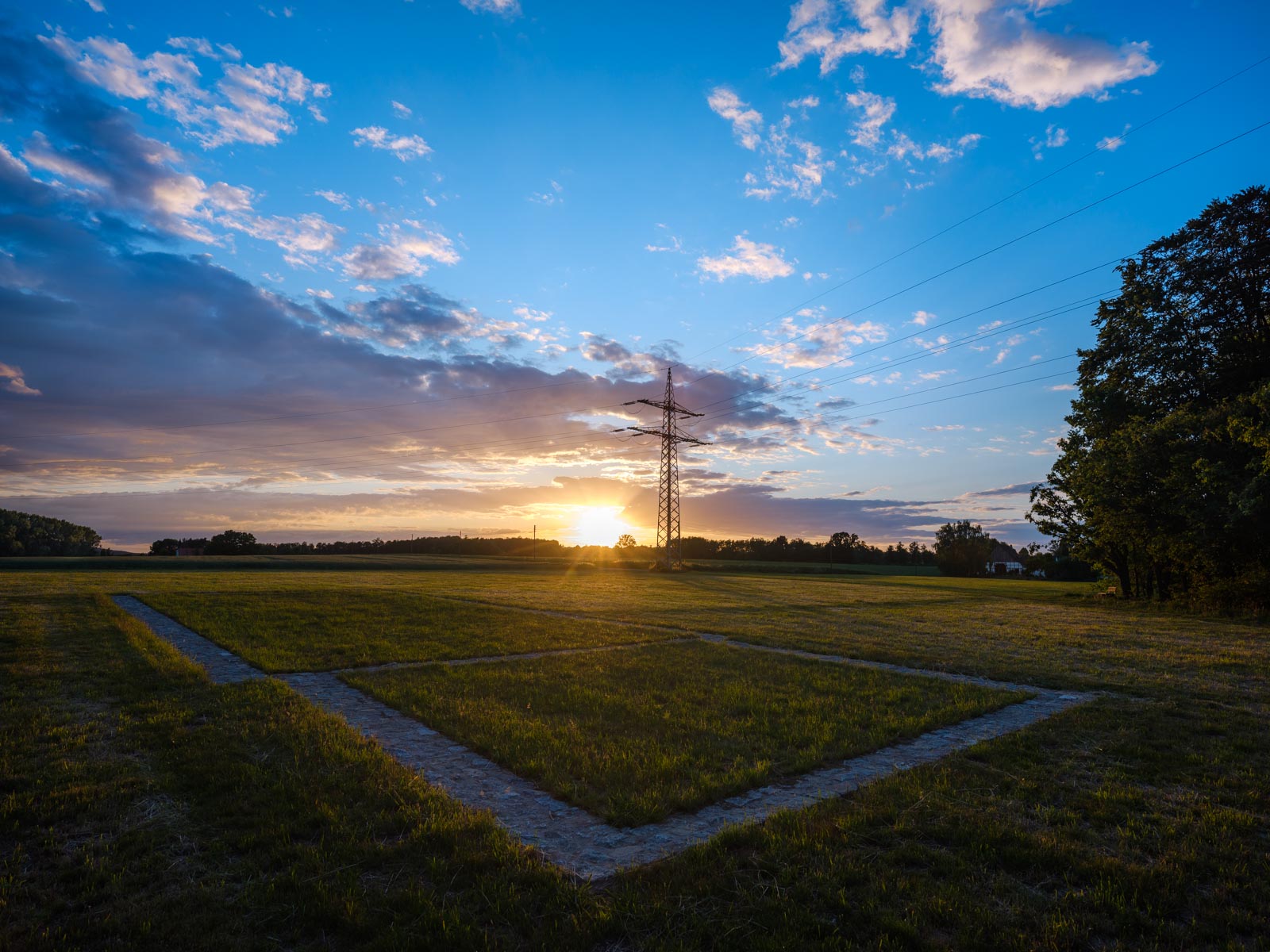
Old church of Müdehorst #2
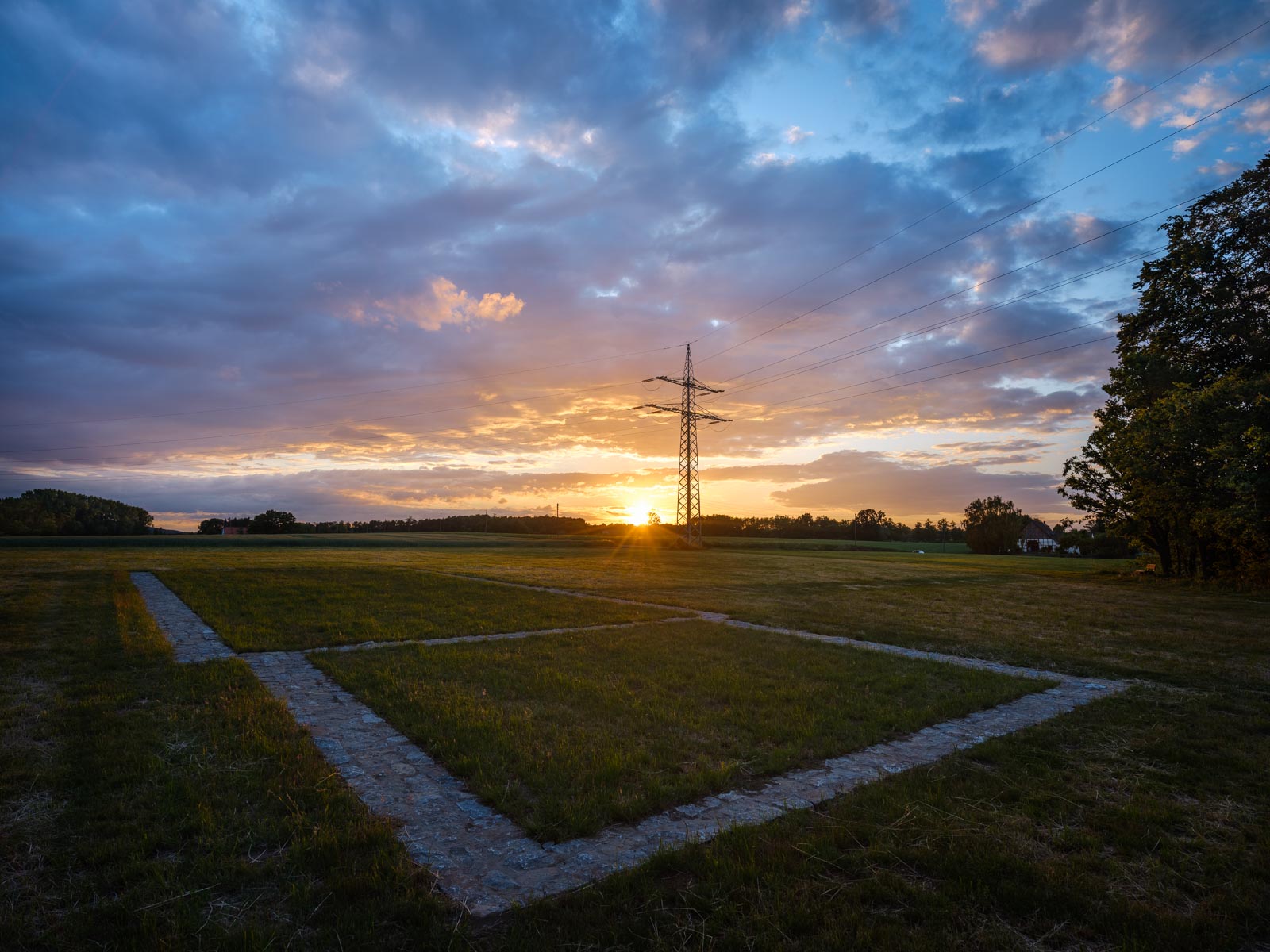
Fields at the church of Müdehorst
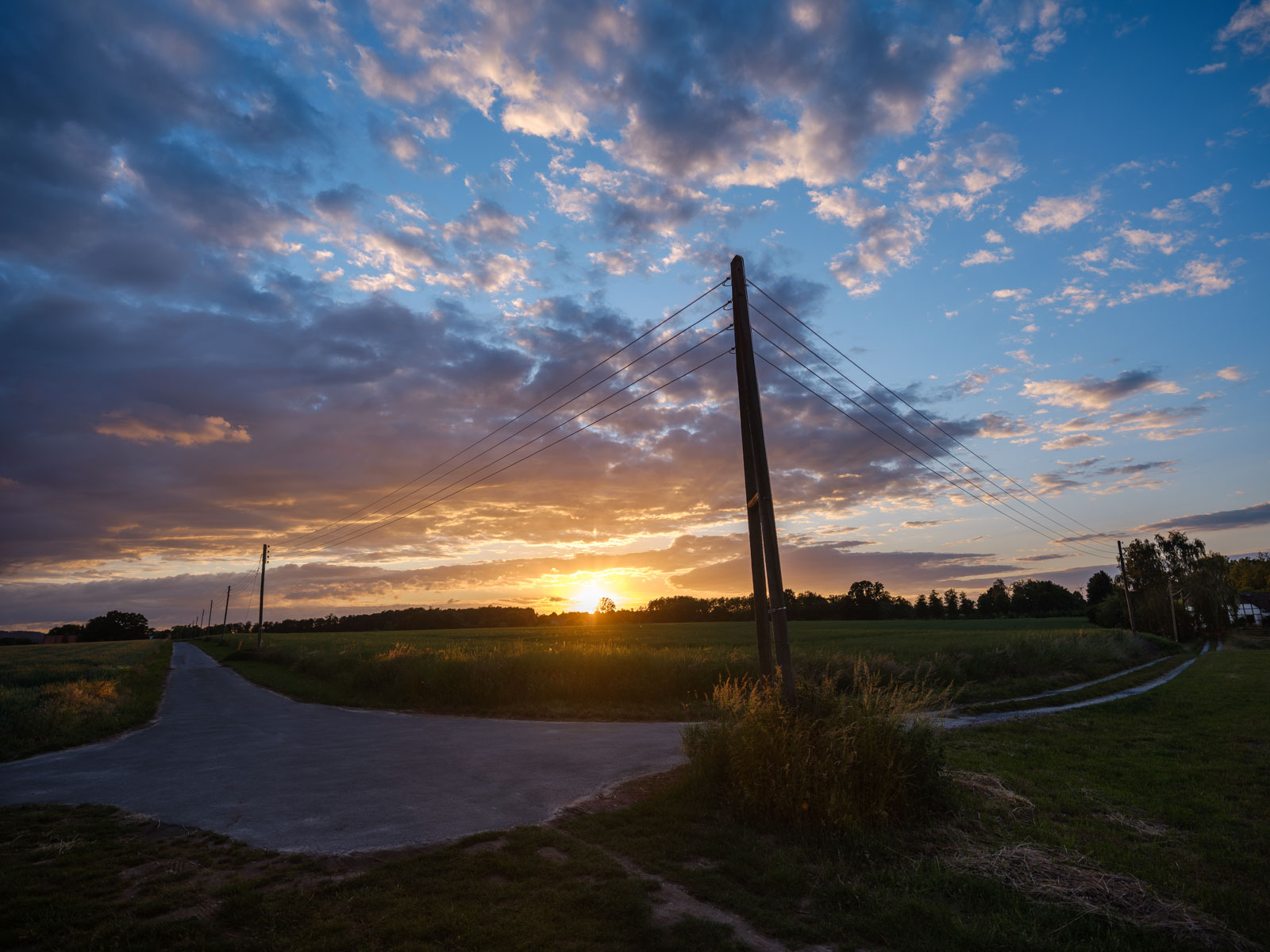
> Nature
06/07/2020
Friday, 5 June 2020, was a day of rather stormy weather here in Bielefeld. Clouds and rain. After I had already photographed the wind turbines in Bielefeld-Brönninghausen a few days before in the morning with nice weather, the completely different weather situation offered itself to take pictures again. With completely different mood. When I was there at about 8 o'clock in the evening, the conditions were really terrible. Grey sky, rain showers, wind. However, the sky opened from time to time. And to wait for these moments was worth it.
Prints of the pictures are available in my online shop. If you want to visit the shop, you have to leave this website: www.farbenfrohebilder.de
Wind turbine and cloudy sky #1
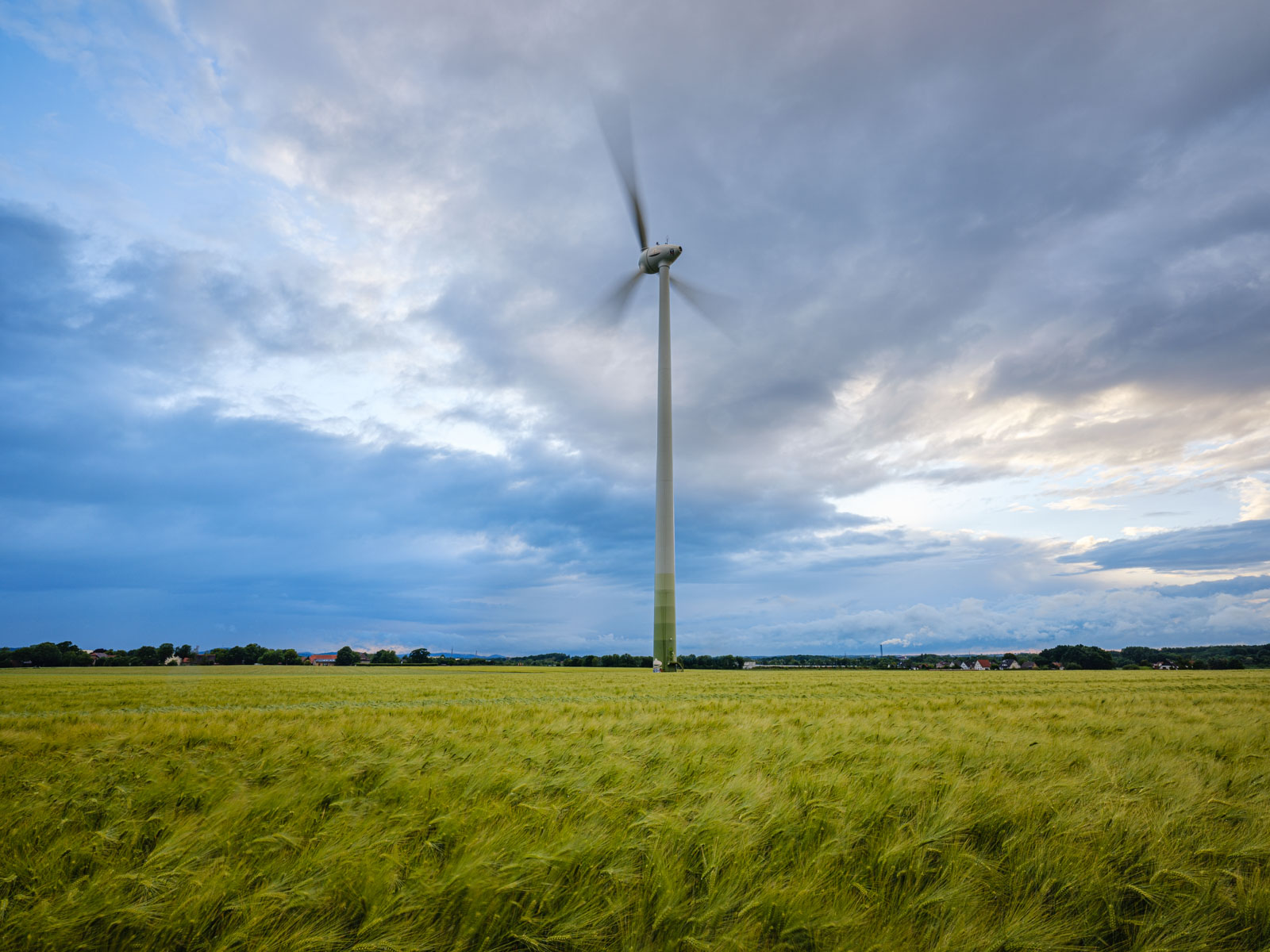
Wind turbine and cloudy sky #2
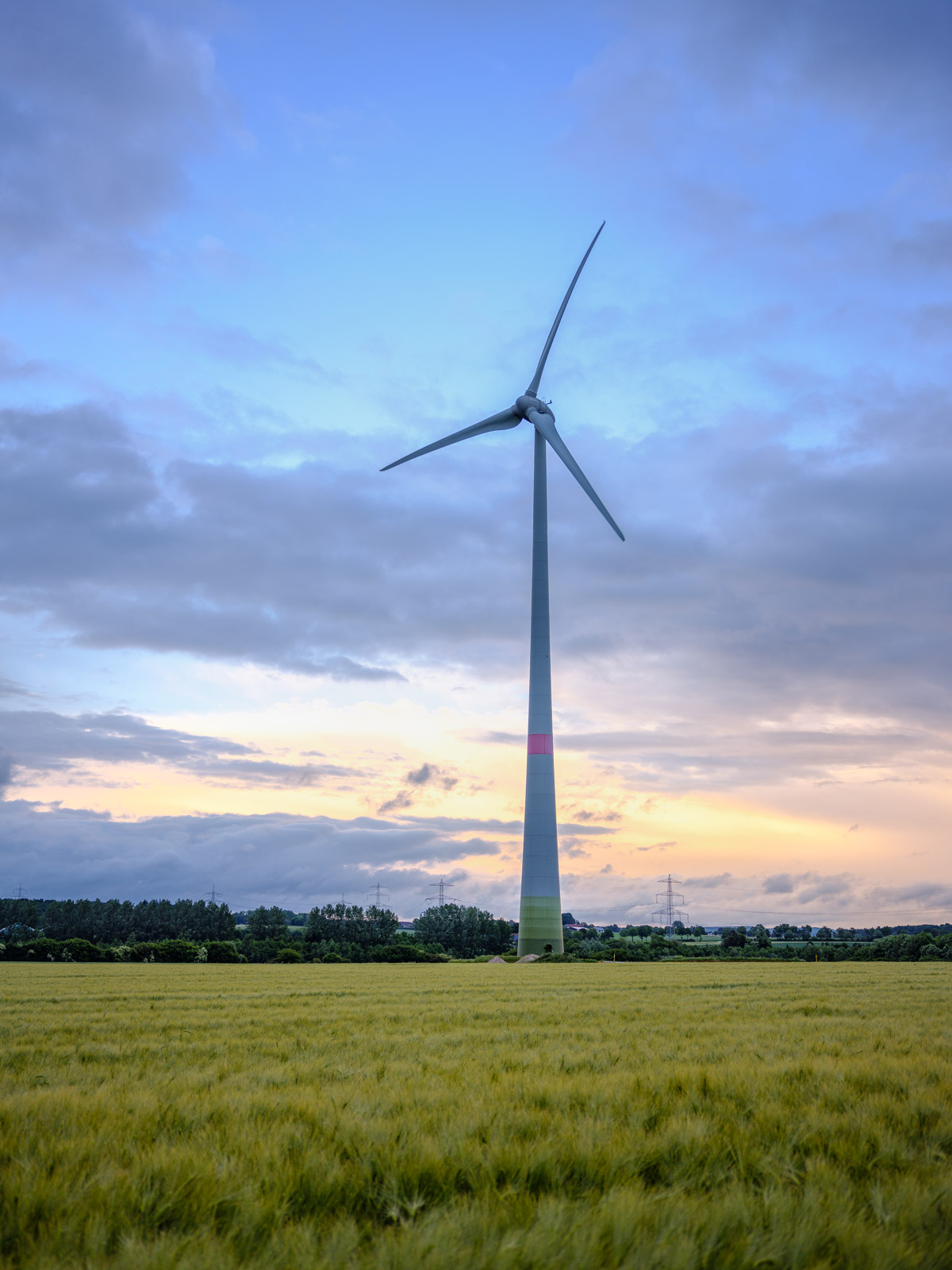
Wind turbine and cloudy sky #3
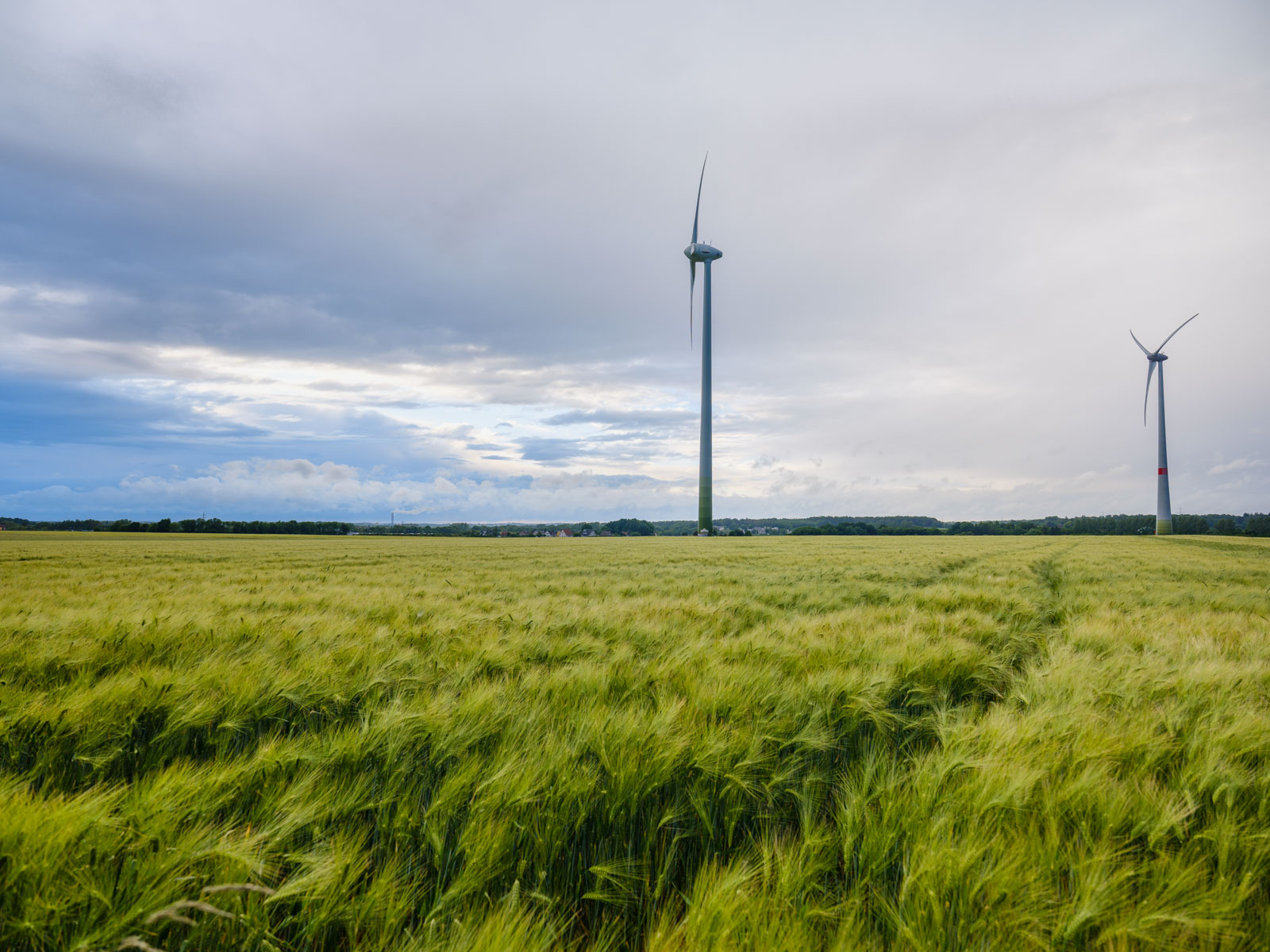
> Nature
06/05/2020
From last weekend I still have two nature photos, which are worth to be shown. I walked along the 'Beckendorfer Mühenbach' - a small brook in the hilly country - in the Bielefeld district 'Theesen'.
Both pictures were taken with the Fujifilm GFX50R camera. The photo of the foxglove with the lens Fujinon GF 5.6/ 100-200 mm R LM WR OIS and the second photo of the ox-eye daisies with the Fujinon GF 3.5/ 50 mm R LM WR. Unfortunately I did not have a macro lens or an extension tube with me. But then it worked quite well.
Common foxglove (Digitalis purpurea)
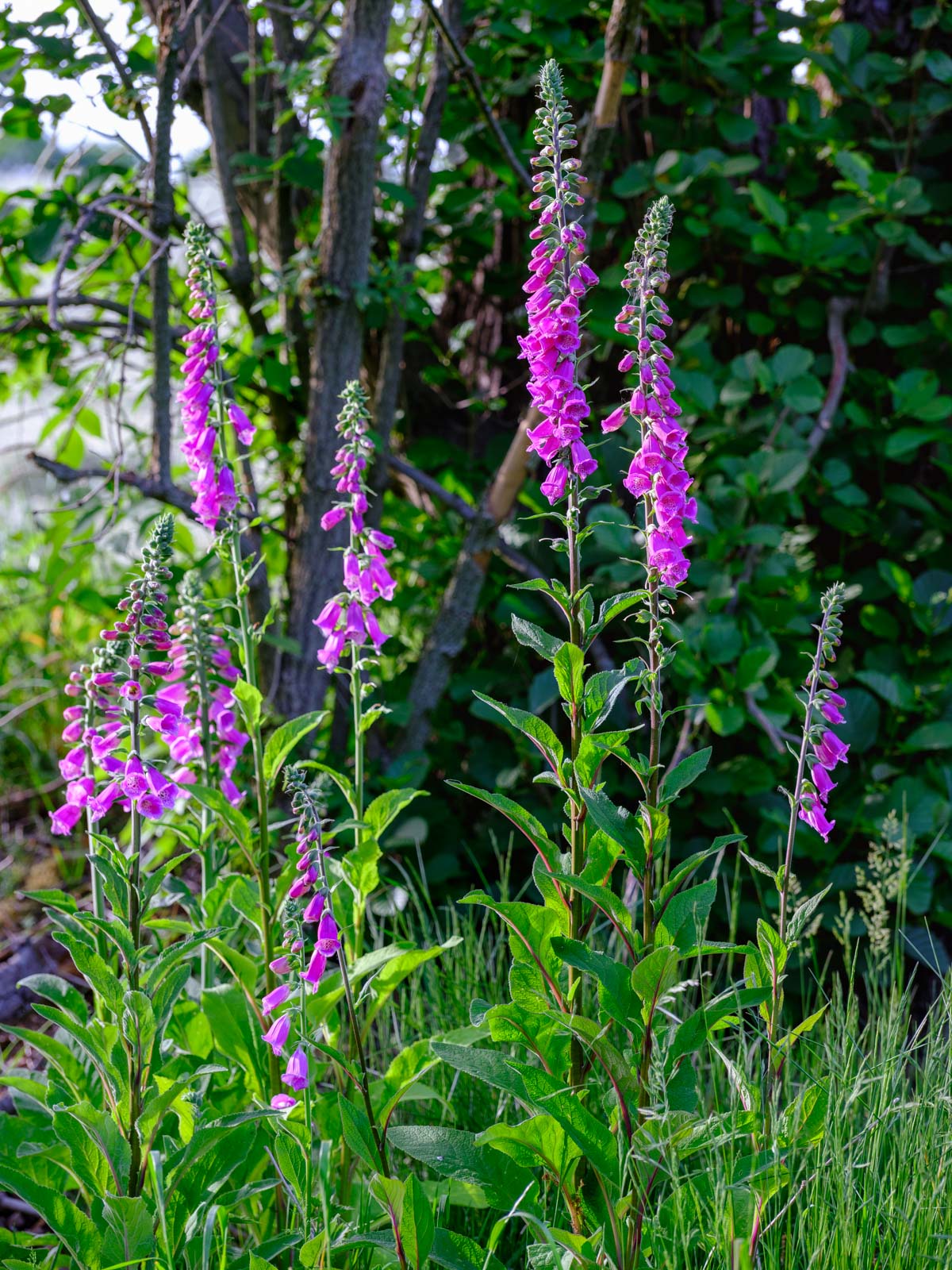
Ox-eye daisies (Leucanthemum vulgare)
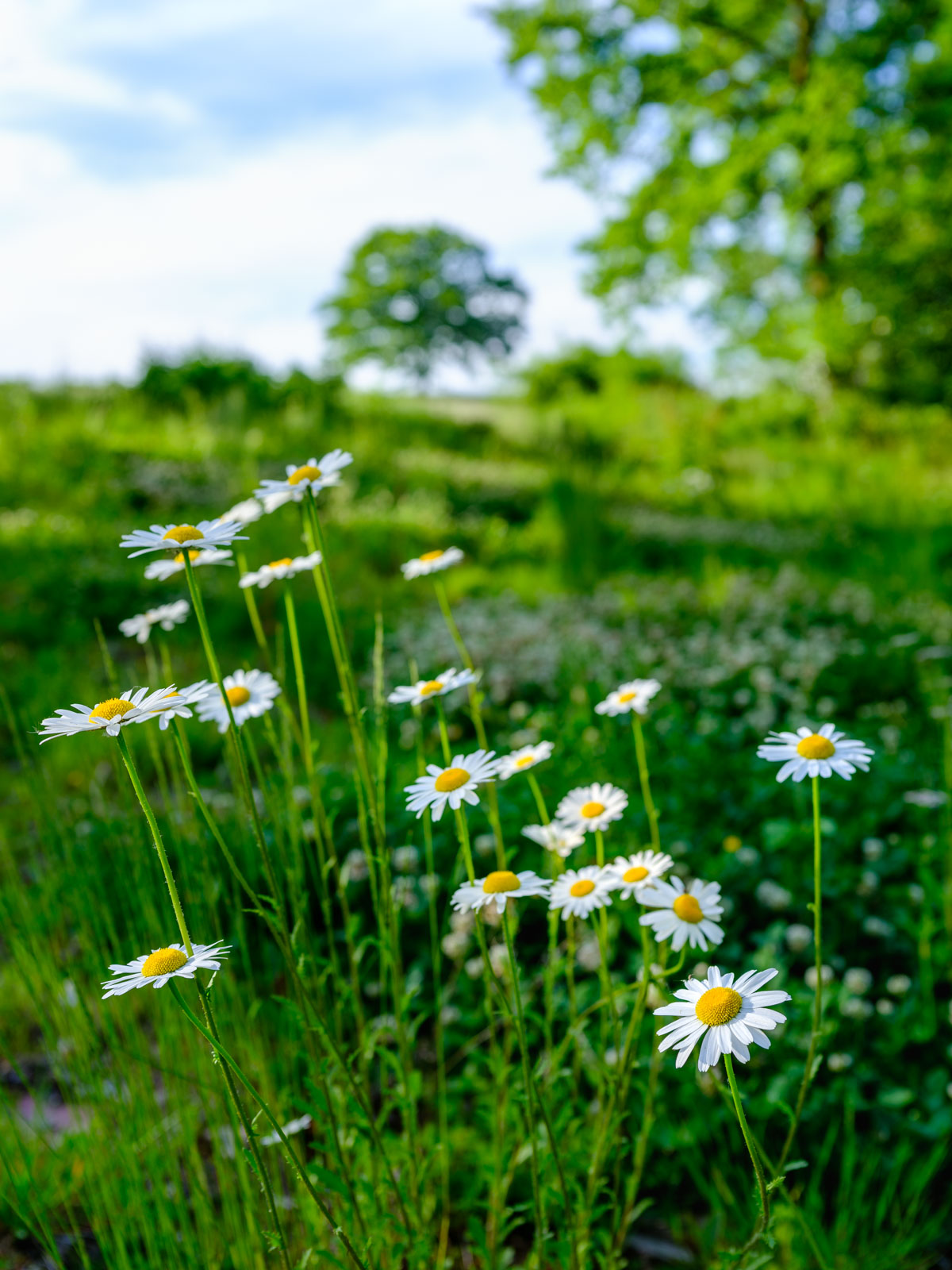
> Nature
06/04/2020
Meanwhile wind turbines are a determining element in German landscapes and there are also some in Bielefeld and surroundings. These are located on the eastern outskirts of the city in the district 'Brönninghausen'. I have been there very early in the morning and hoped for a nice light atmosphere with dramatic clouds. While the last days were summerly warm, a change of weather was announced and that is mostly a guarantee for a dramatic sky. In this case this was also the case.
Both pictures were taken with the Fujifilm GFX 50R camera. The lens Fujinon GF 4/ 23 mm R LM WR was used for the horizontal format and the Fujinon GF 3.5/ 50 mm R LM WR for the vertical format.
And on the way there I took photographs of a red poppy in a yellow-green wheat field. Admittedly not a very rare subject.
Wind turbines in Brönninghausen #1
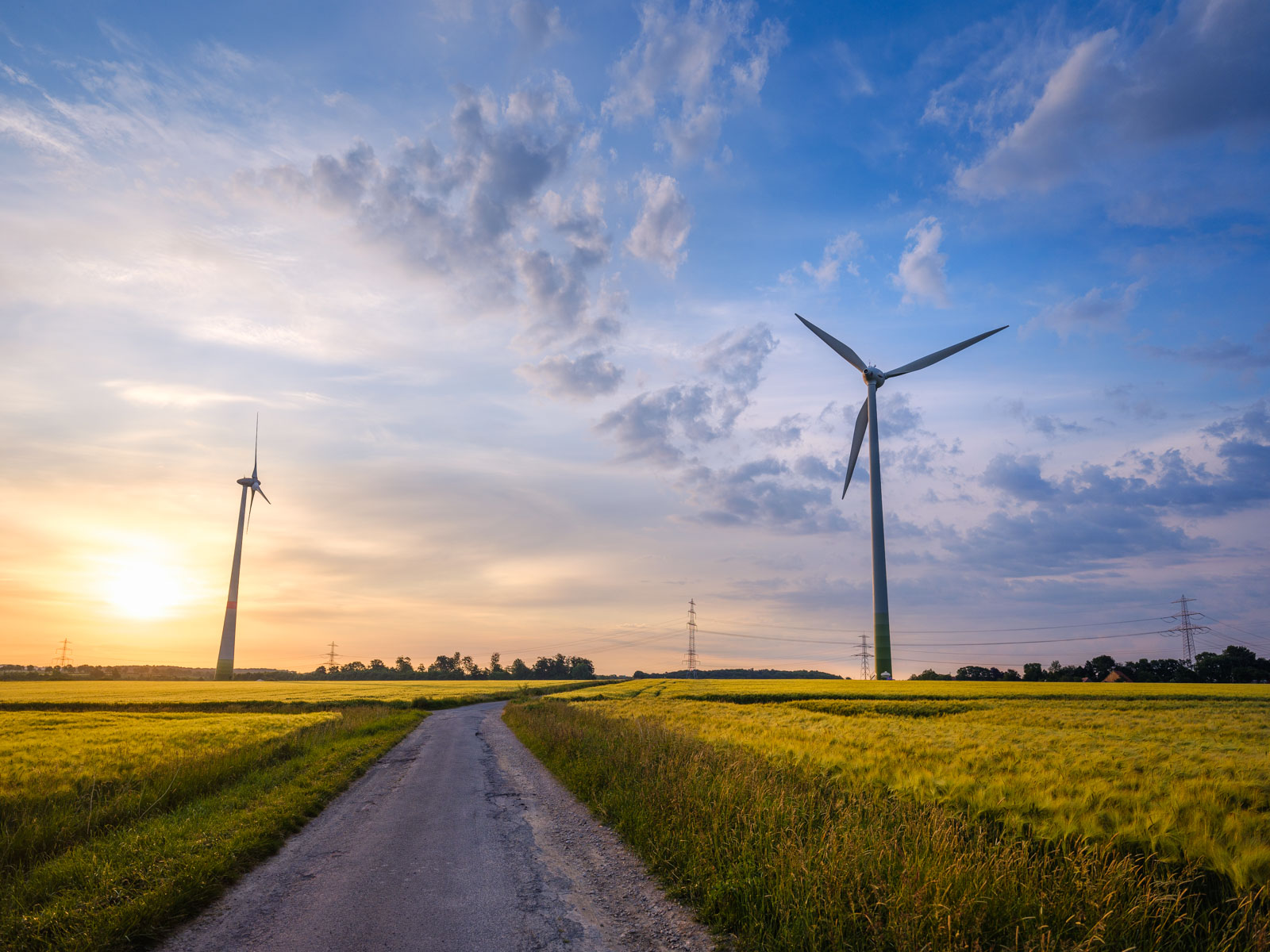
Wind turbines in Brönninghausen #2
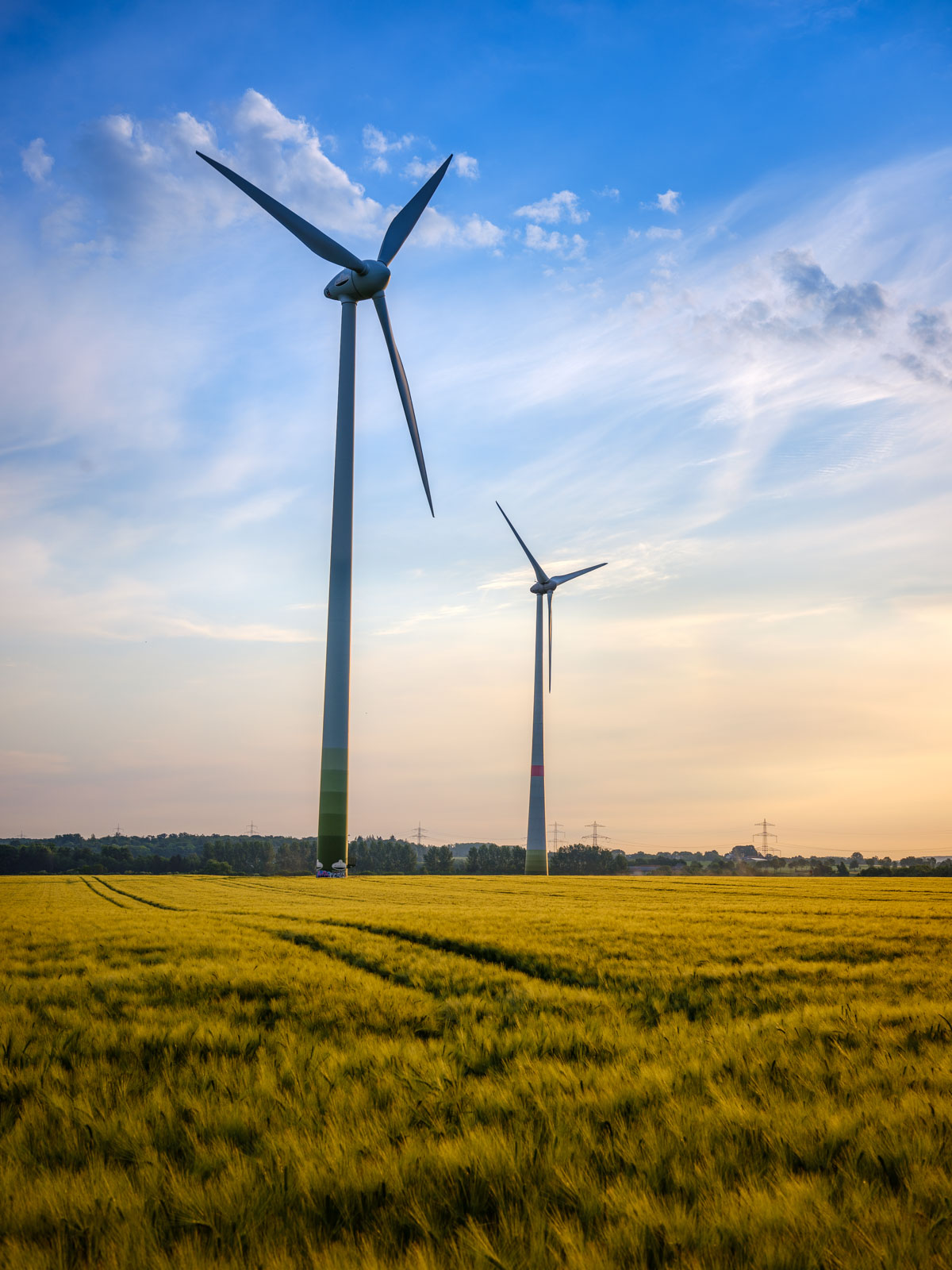
Red poppy #1
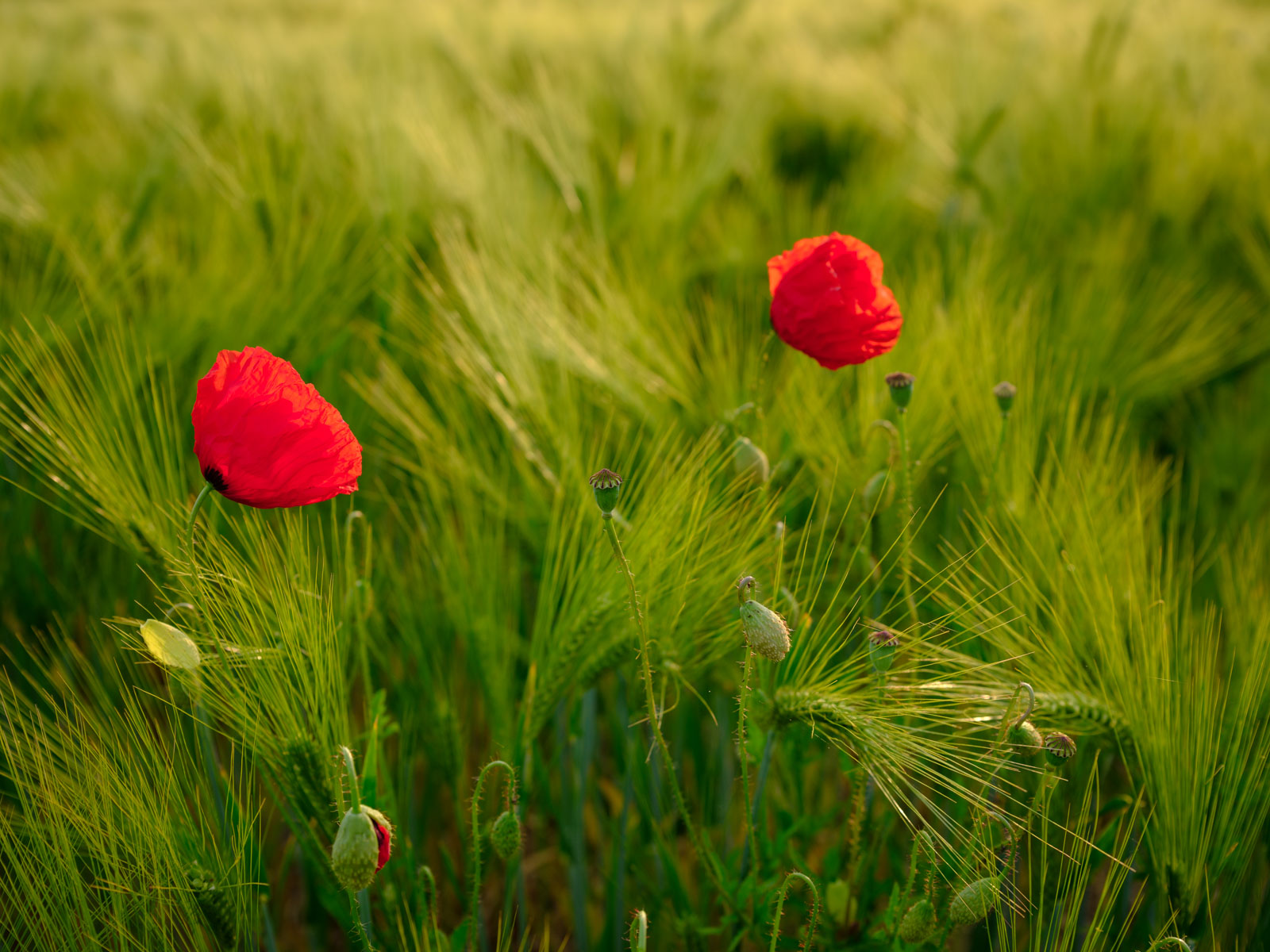
Red poppy #2
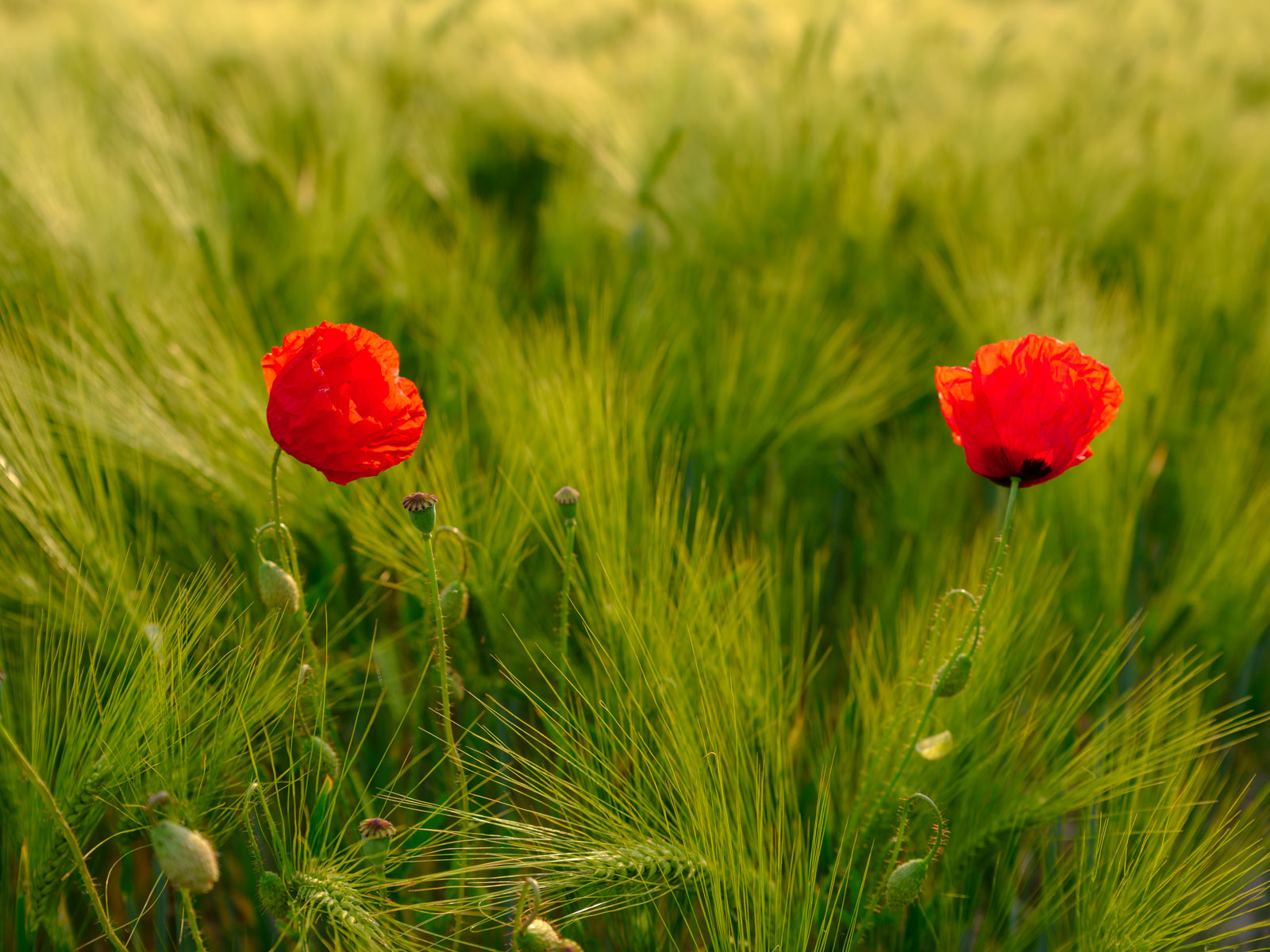
> Nature
05/31/2020
As promised in the last post, here are more photographs from 'Kirchdornberg' in Bielefeld. Actually 'Kirchdornberg' is more a village and less the district of a big city with more than 300.000 inhabitants. In fact, it is located directly at the city limits at the Teutoburg Forest surrounded by fields.
All photos were taken on different days in May 2020. The spring weather means that the lighting moods change again and again, which makes it so nice to drop by from time to time. There are almost always opportunities for beautiful pictures.
Church in the fields #1
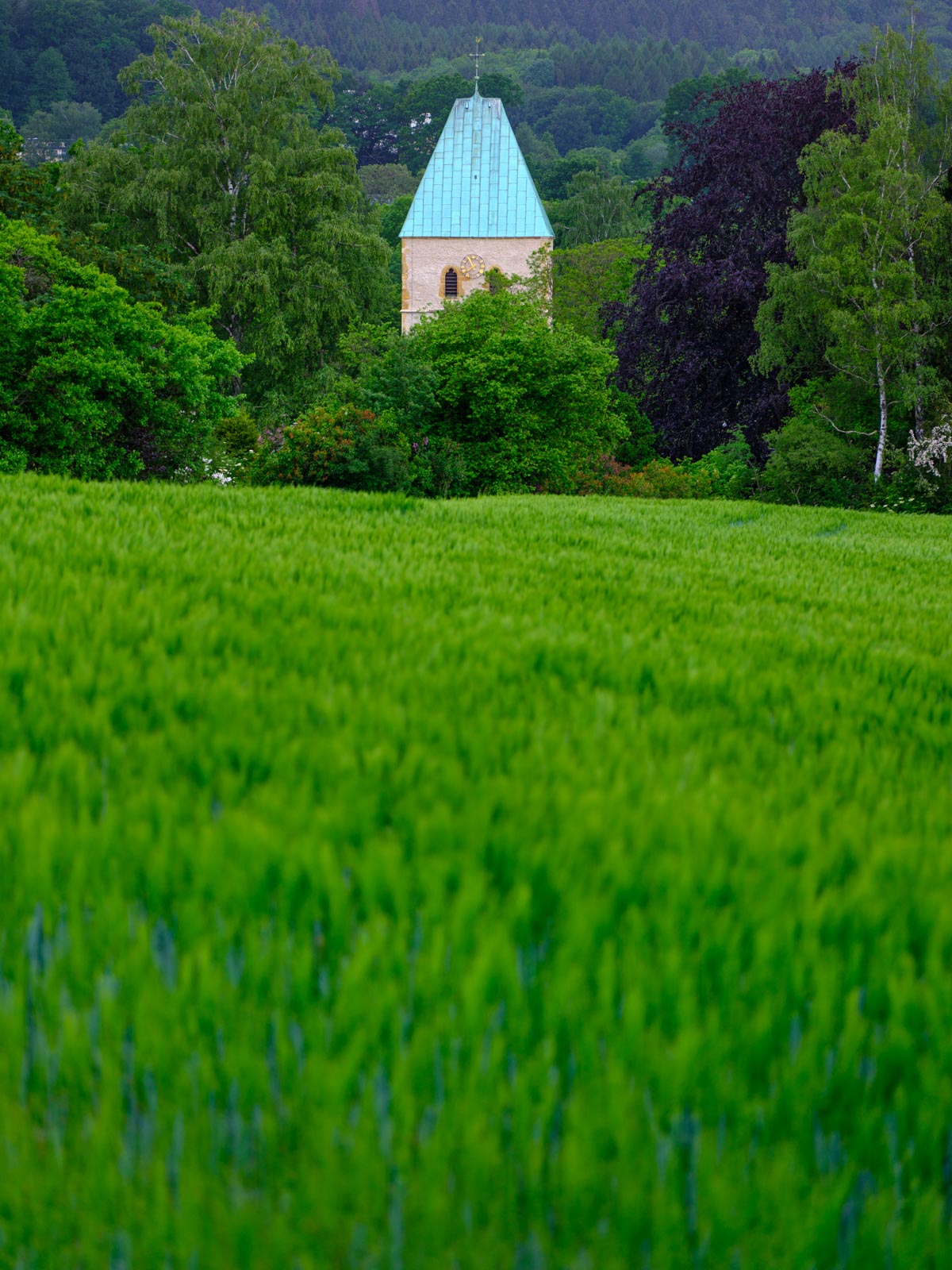
Church in the fields #2
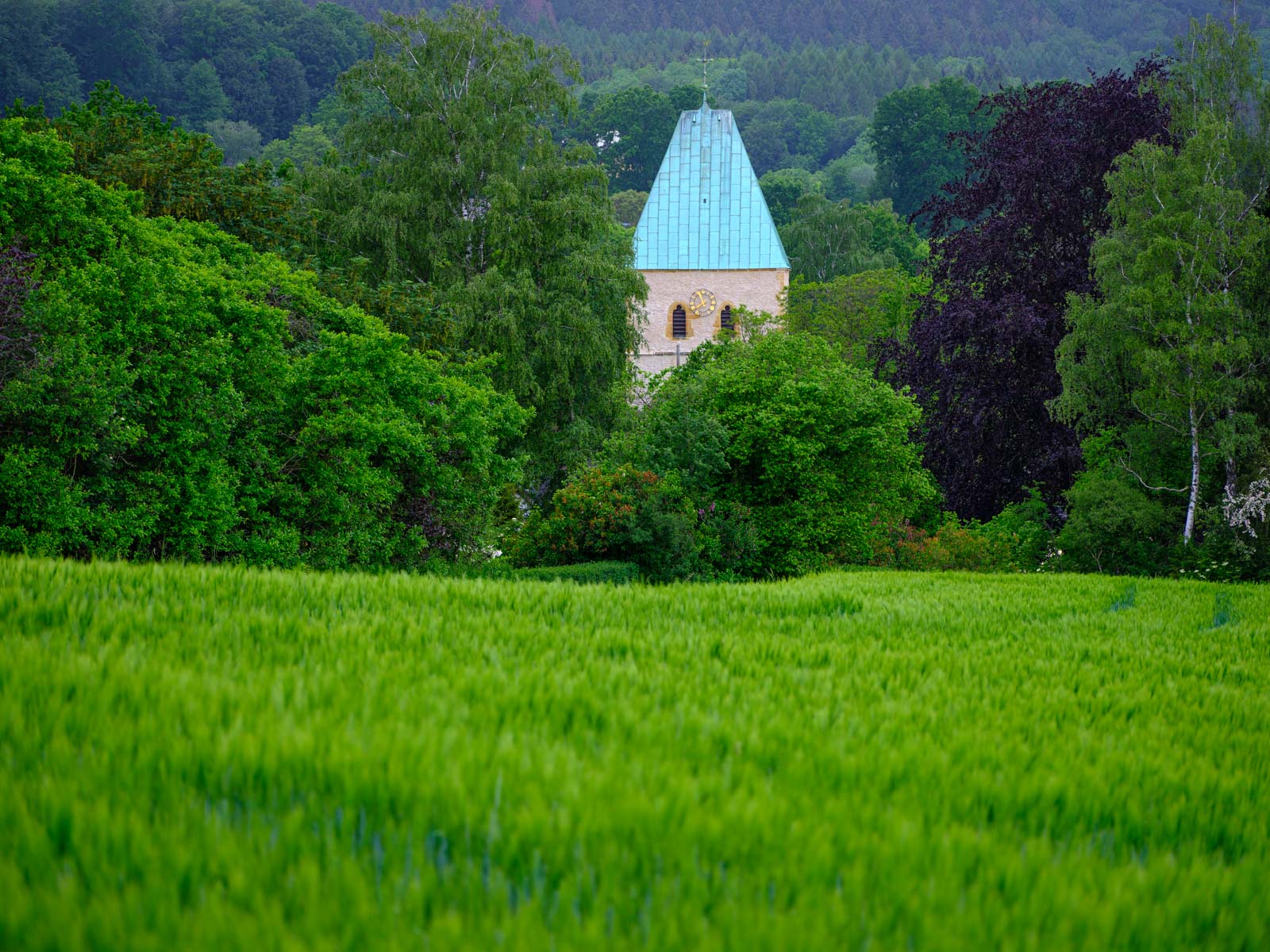
Rising thunderclouds #1
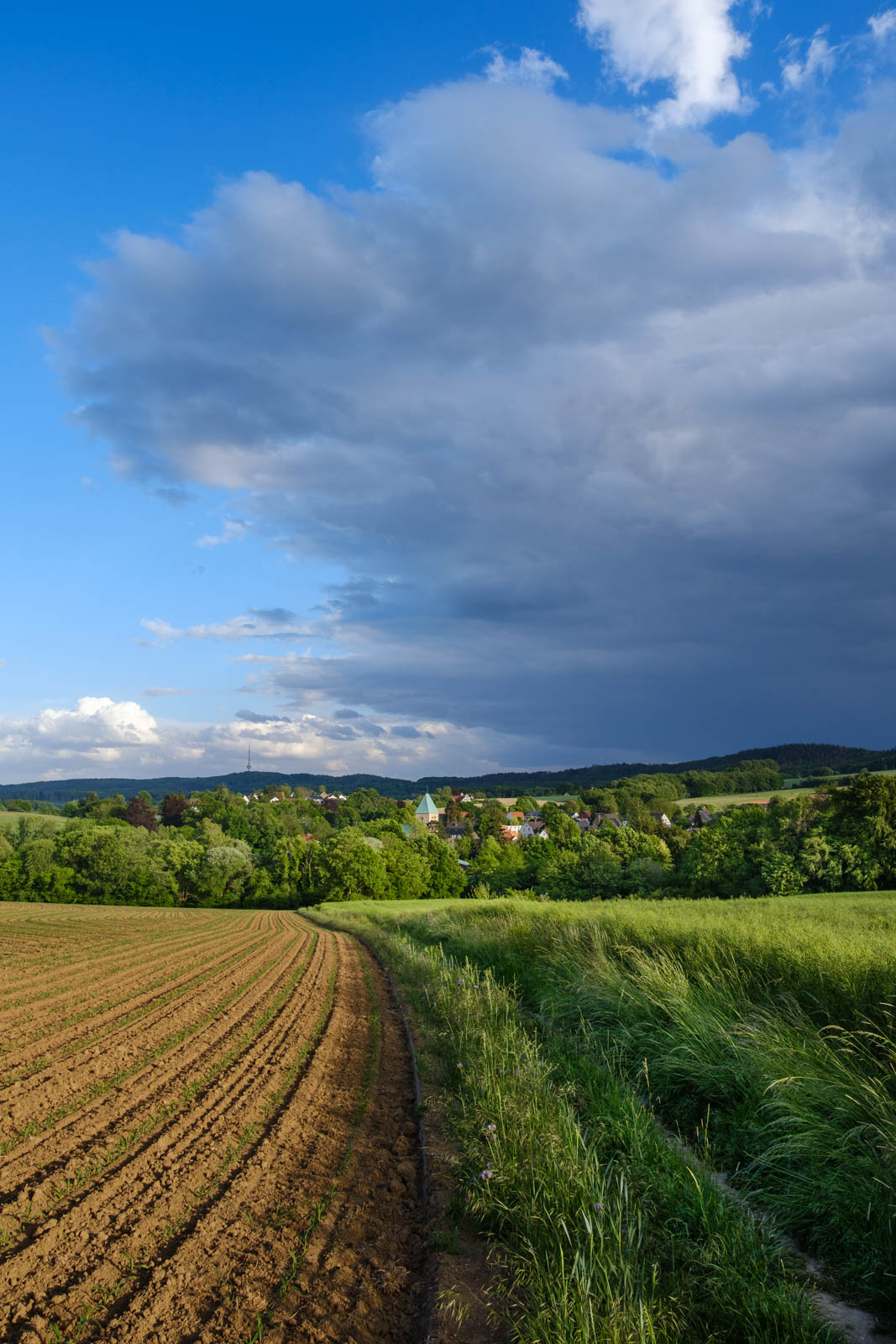
Rising thunderclouds #2
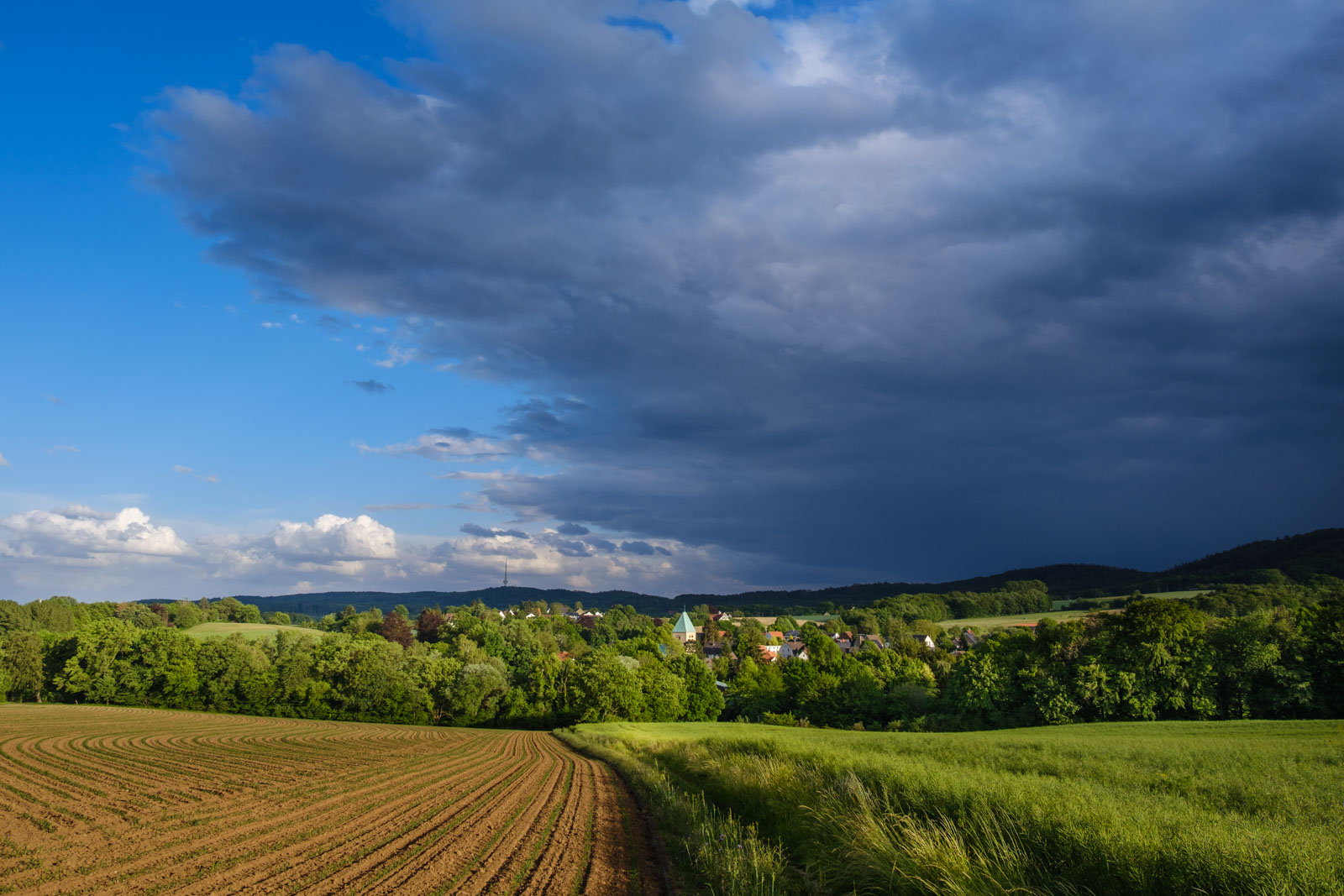
Rain clouds over 'Krichdornberg'
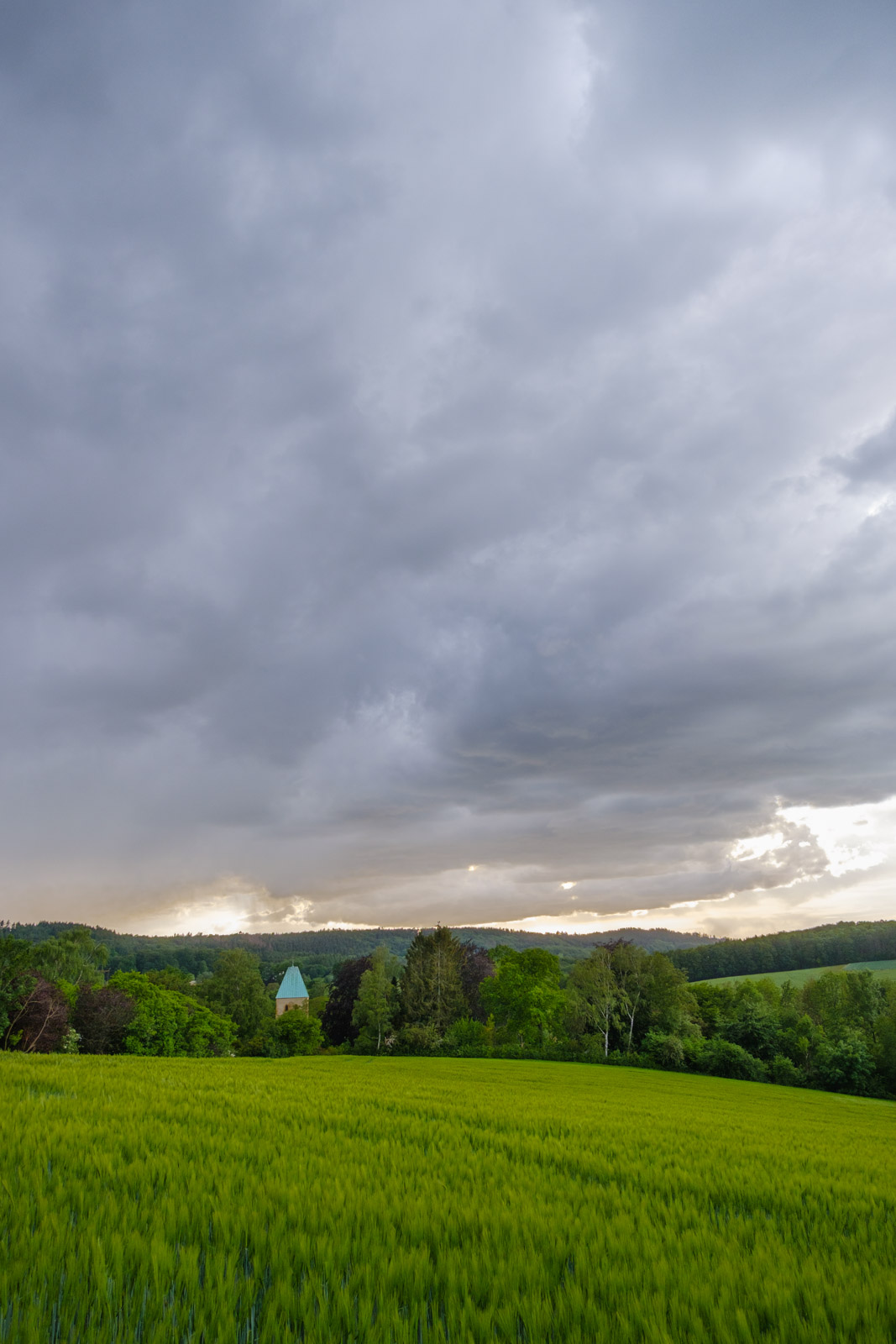
Spring evening #1
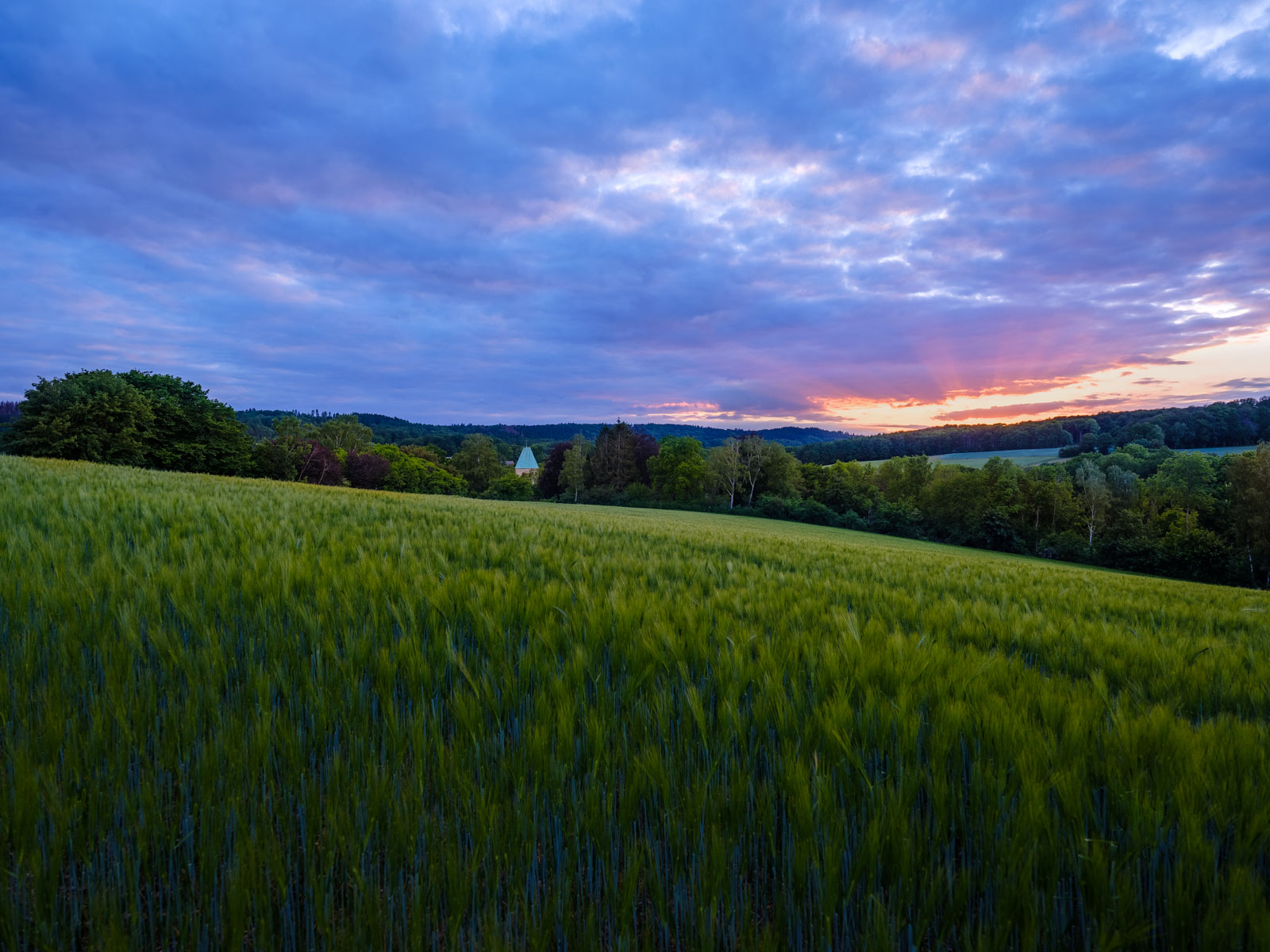
Spring evening #2
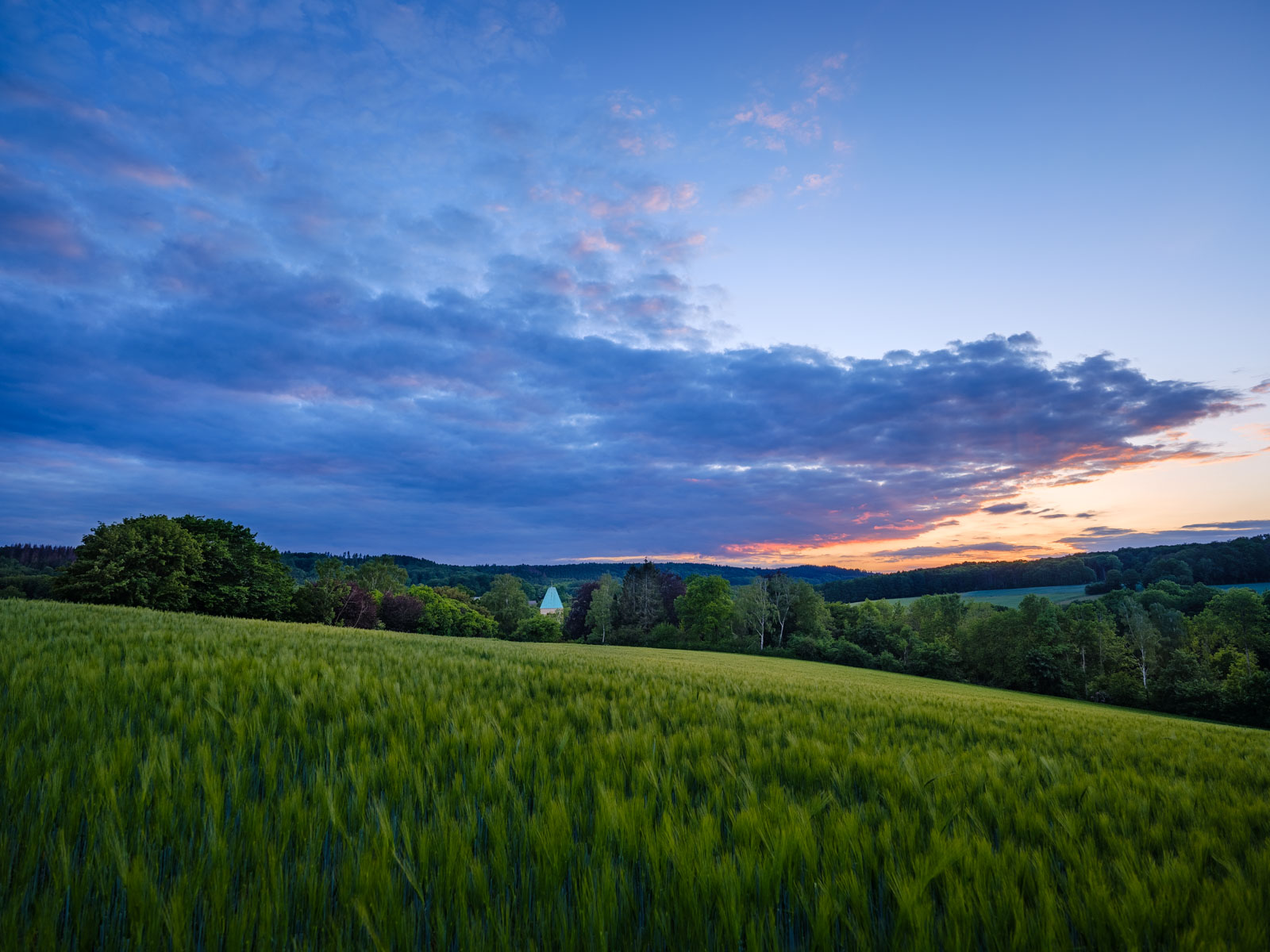
> Nature
05/30/2020
Now for over four months I have finally got around to taking photos with the drone. After taking conventional pictures in Kirchdornberg - a district of Bielefeld - last weekend, it was obvious to let the DJI Mavic 2 Pro take off there, too. The photos that were taken on the ground can be seen in one of the next posts here in my blog. As starting point I chose a field on a hill above the village center in the evening shortly before sunset. I think that was a good decision.
I have been using the DJI Mavic 2 Pro for just over half a year now. The picture quality is very appealing. Especially if you take the opportunity to take pictures in RAW format and then carefully develop them. You have to be a bit careful in backlight situations. Here the lens of the drones cannot quite keep up with good interchangeable lenses of system cameras. The problem can be solved by a well-considered choice of perspective and with a flying machine this is usually easy to do.
Spring evening in 'Kirchdornberg'
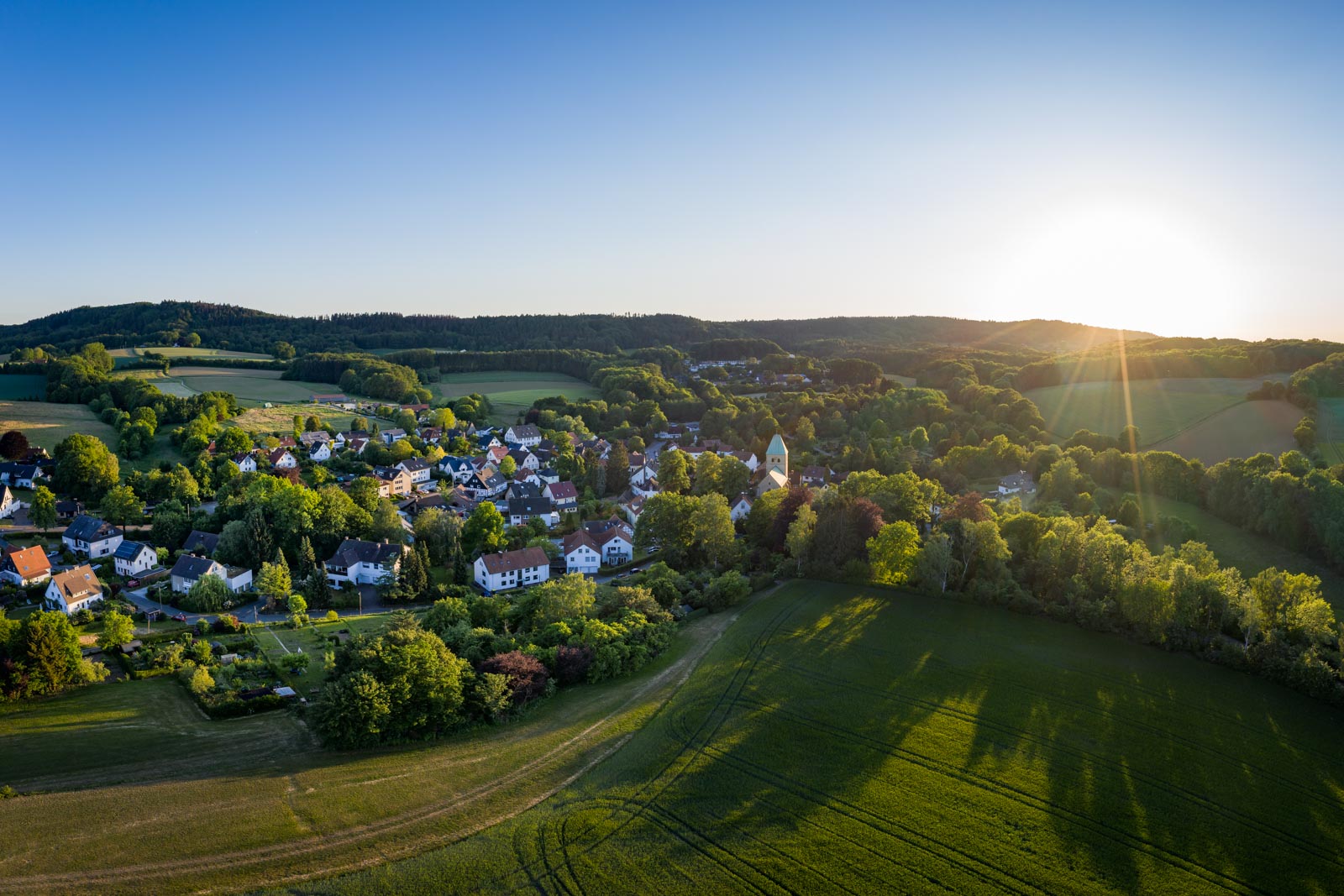
Sunset above 'Kirchdornberg' #1
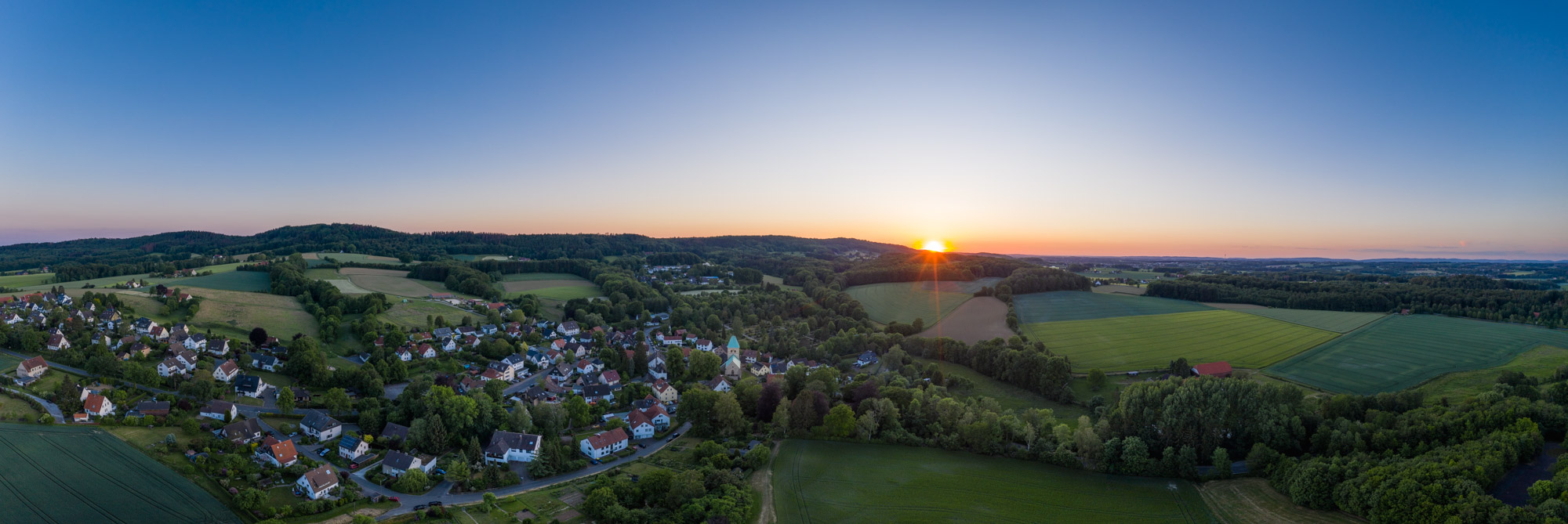
Sunset above 'Kirchdornberg' #2
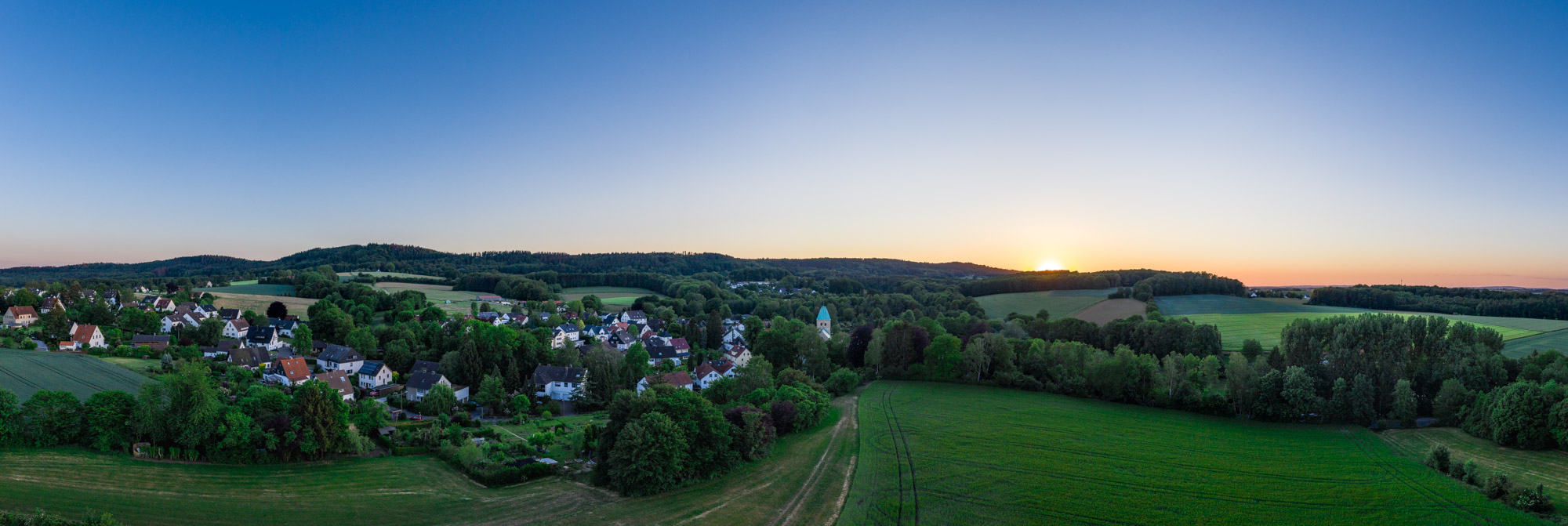
Sunset above 'Kirchdornberg' #3
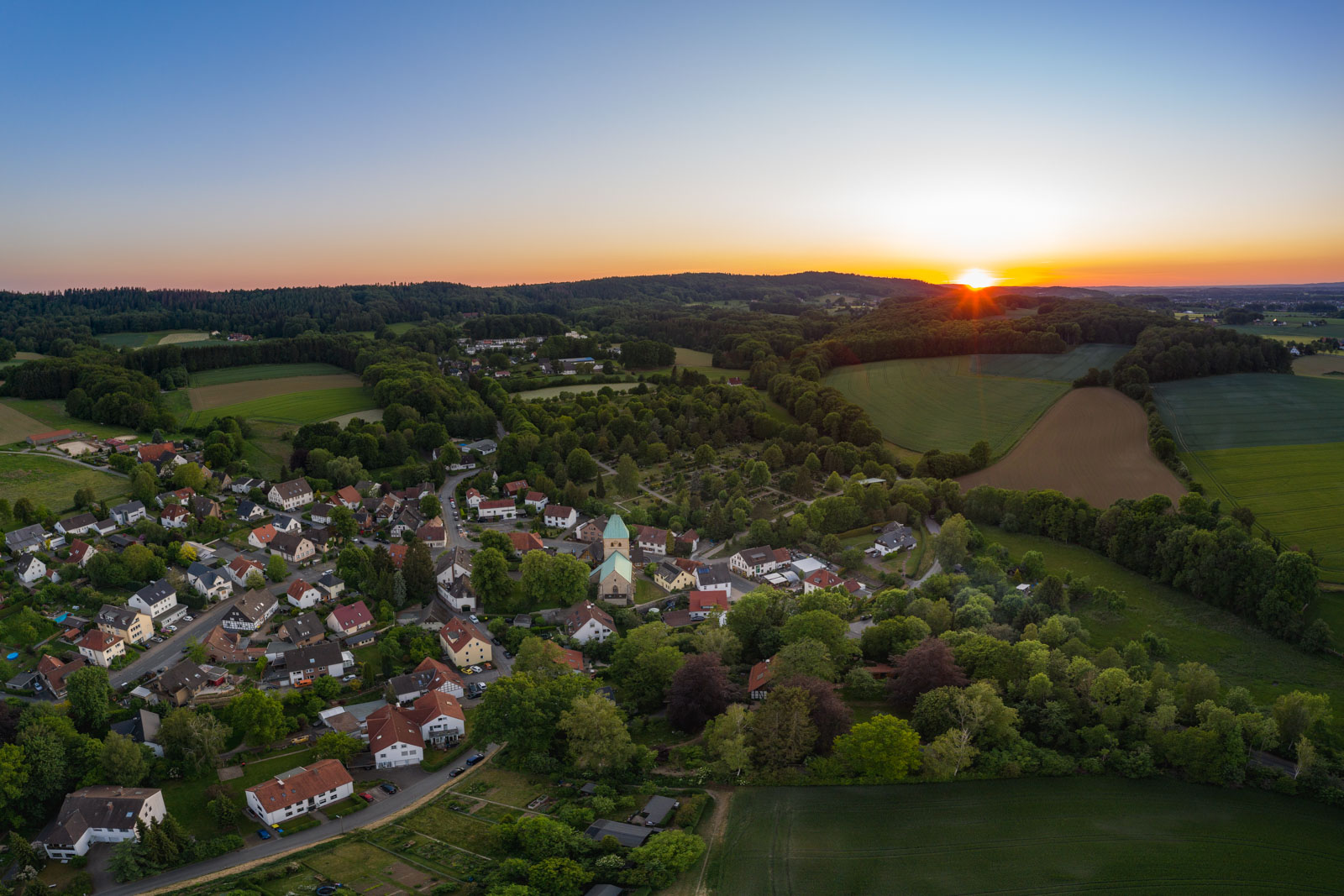
> Nature
05/23/2020
Occasionally I like to photograph silhouettes. Here are two pictures I took in the last days. The first one is taken very early in the morning and shows the chimney of the 'Ravensberger Spinnerei'. It is an old factory building from the 19th century in which a spinning mill was operated. In the time when it was built, Bielefeld was an important centre of the textile industry. Flax was grown in the region around the city, which was then processed into yarn and linen. Today this industry no longer exists. Textile production in Central Europe would be far too expensive. And probably nobody would build a factory today which architecture reminds more of a castle. The building is now a historical monument. The second photo was taken on one of the large squares in Bielefeld. On the 'Kesselbrink'.
Prints of both picture are available in my online shop. If you want to visit the shop, you have to leave this website: www.farbenfrohebilder.de
Dawn over the 'Ravensberger Spinnerei'
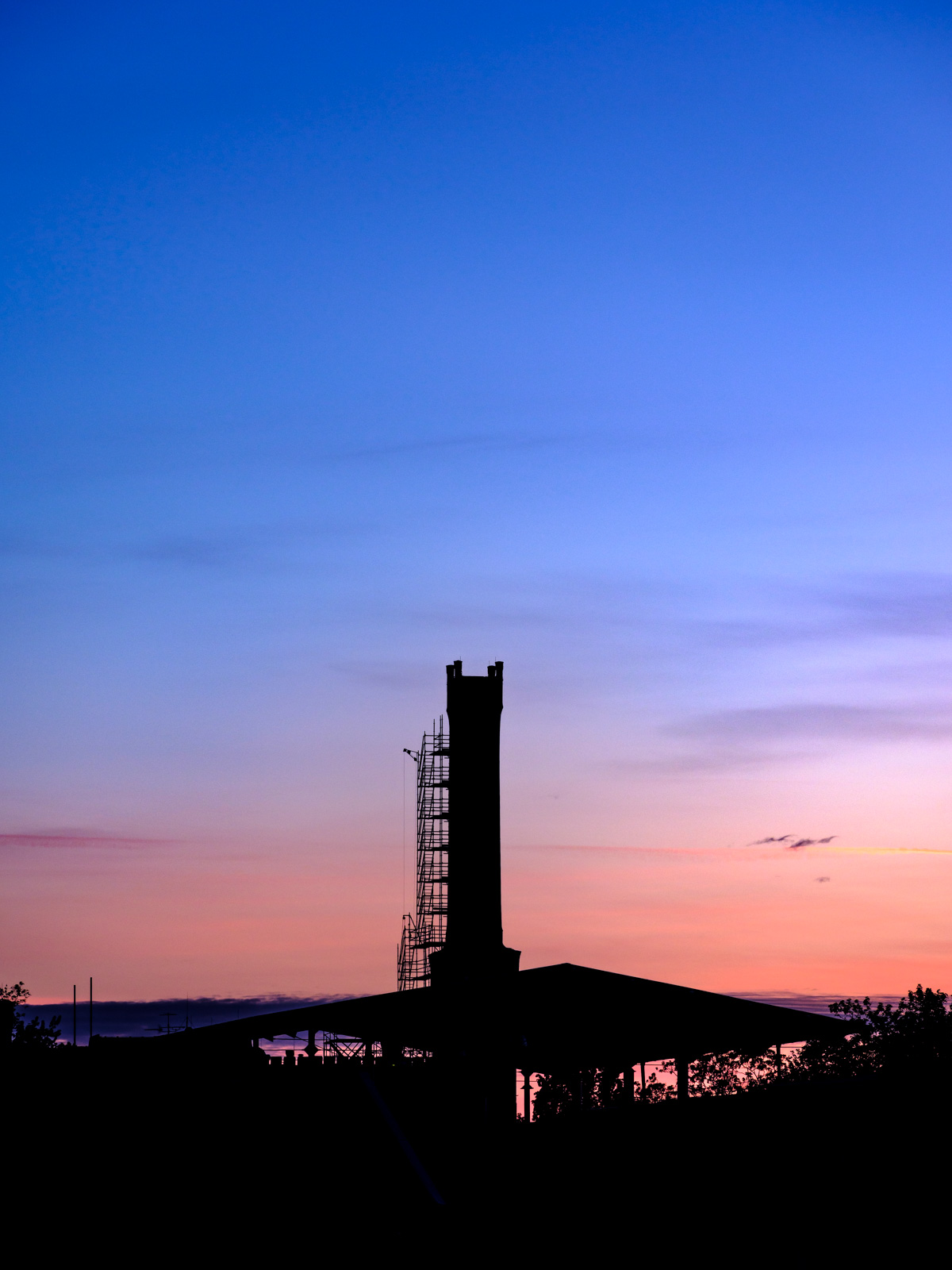
Urban silhouette on 'Kesselbrink'
